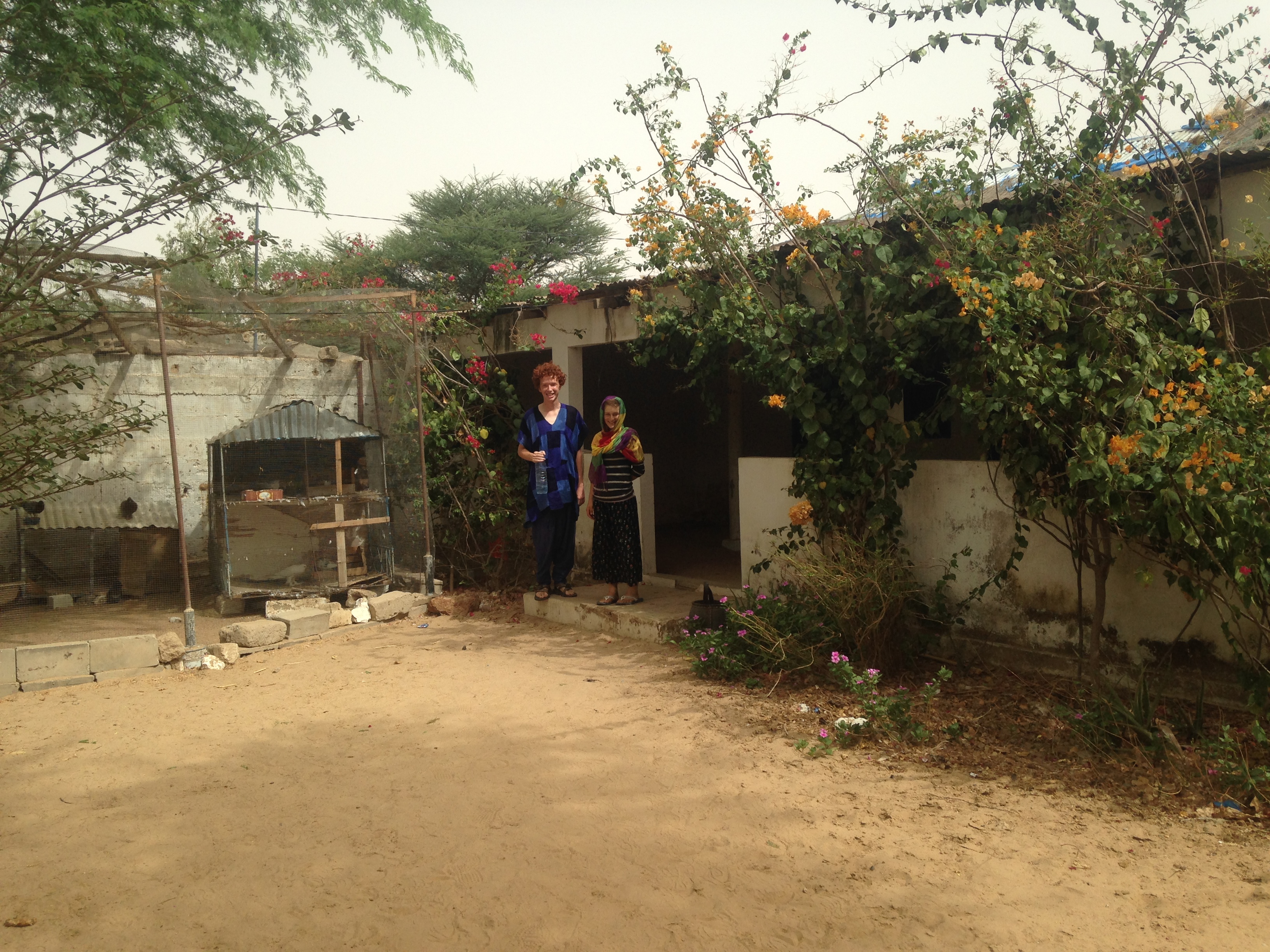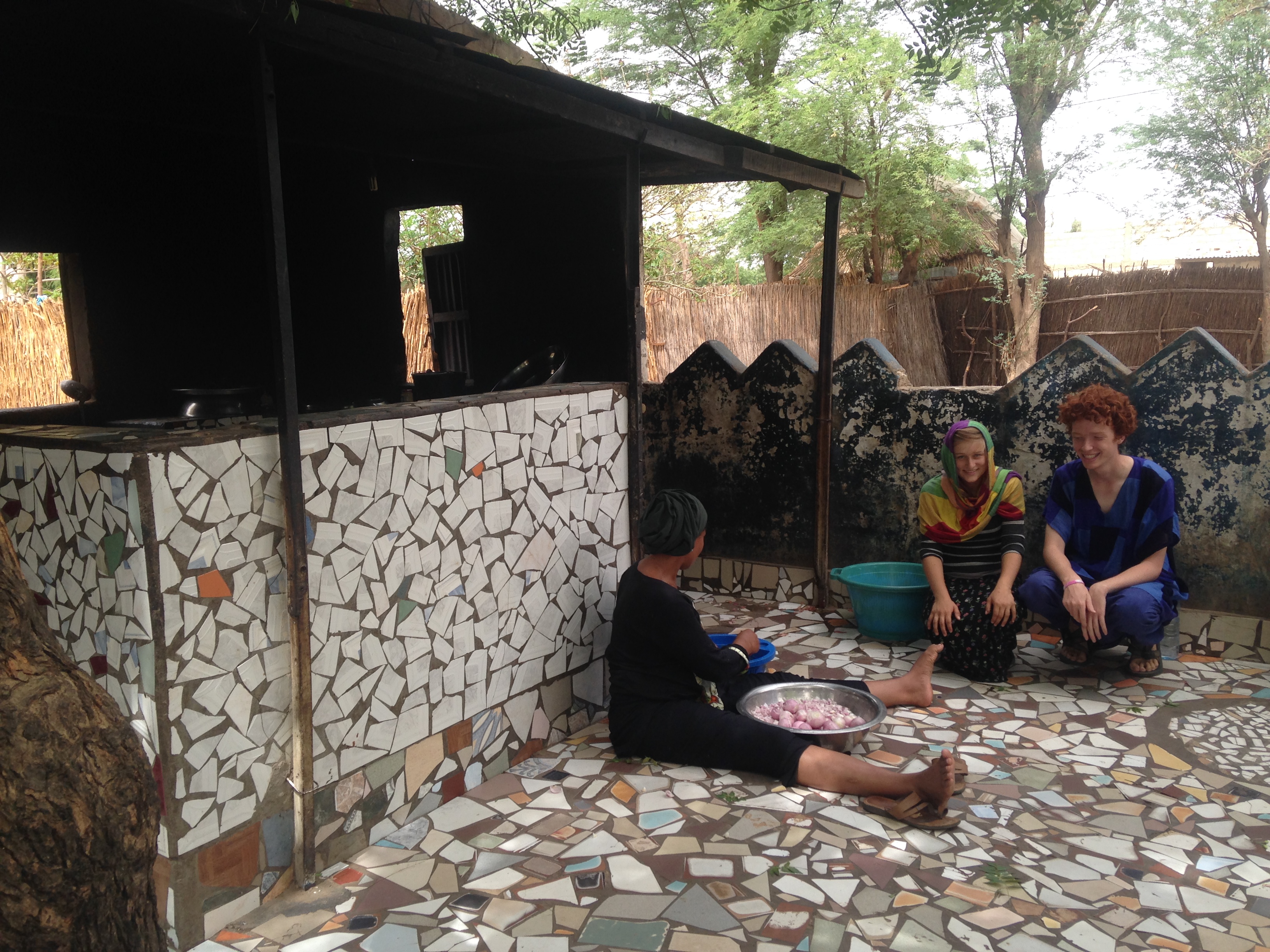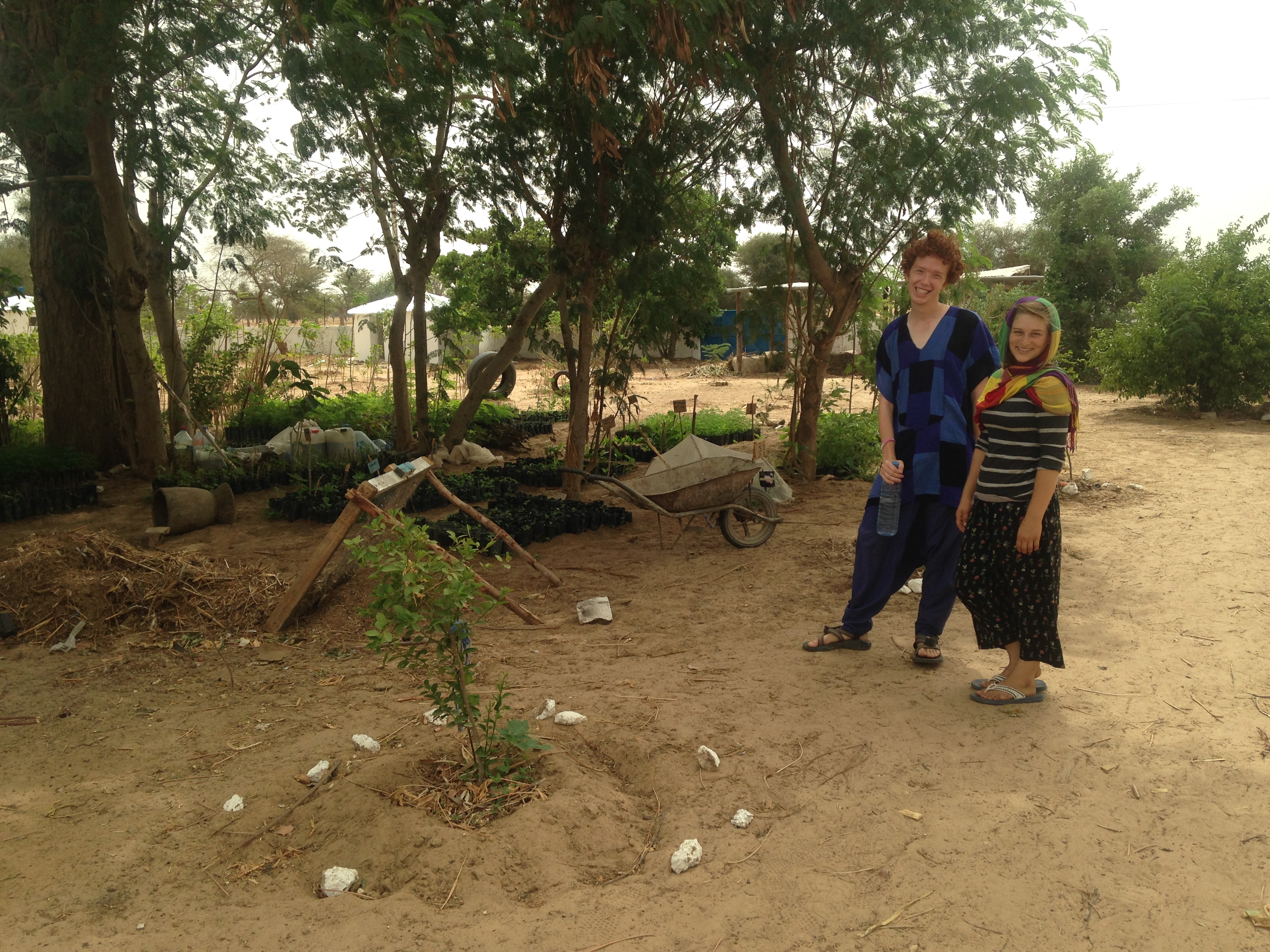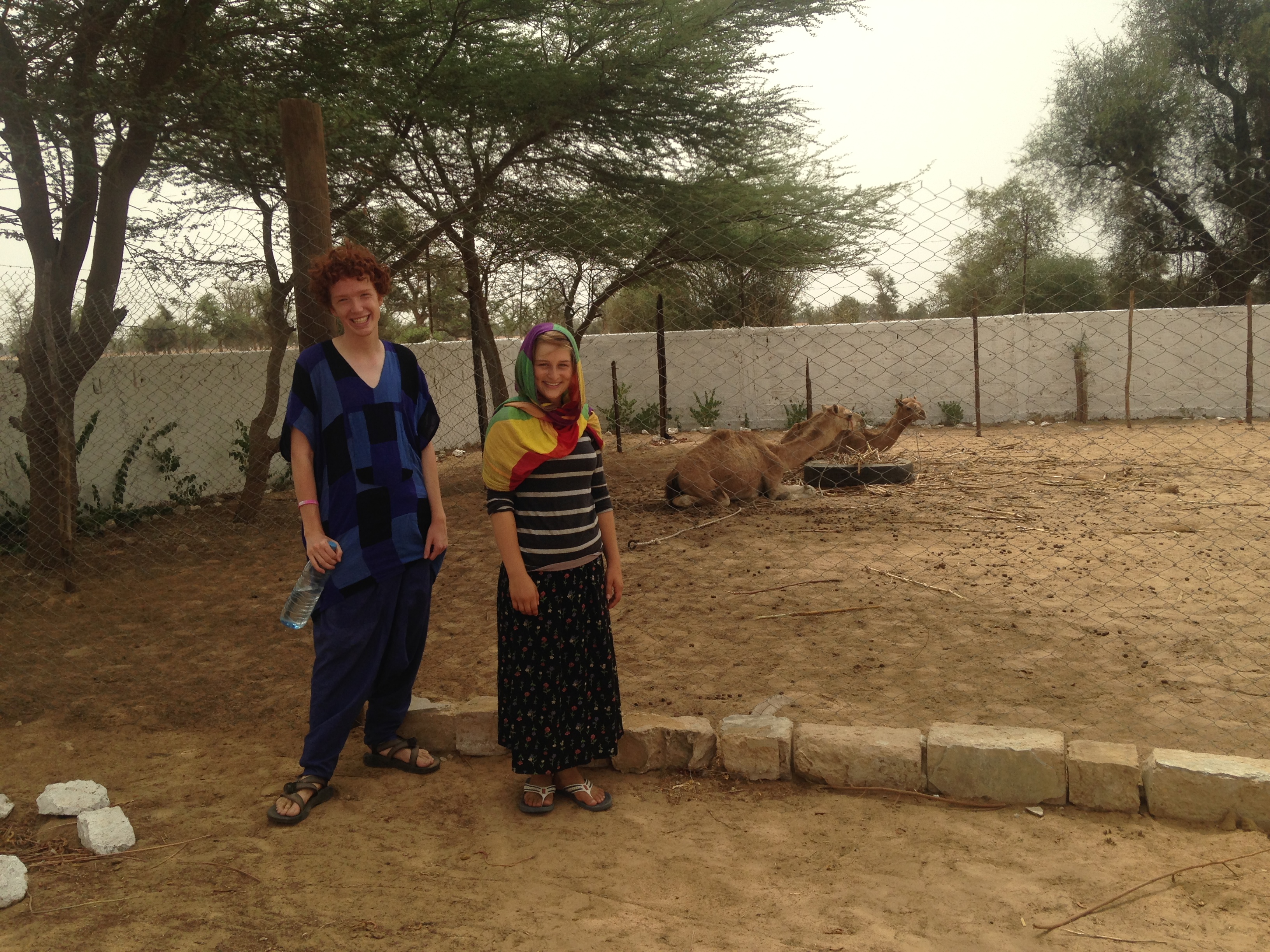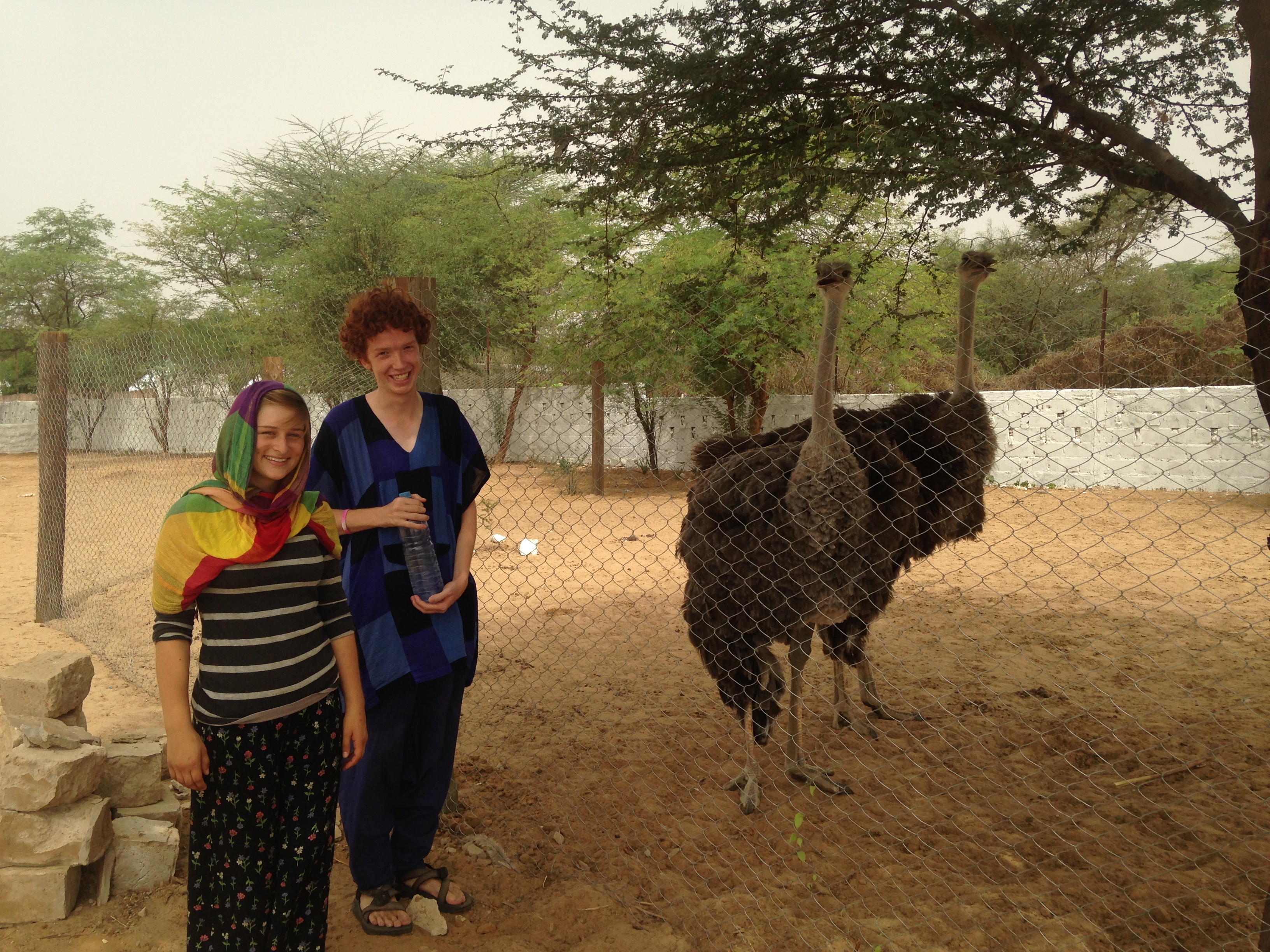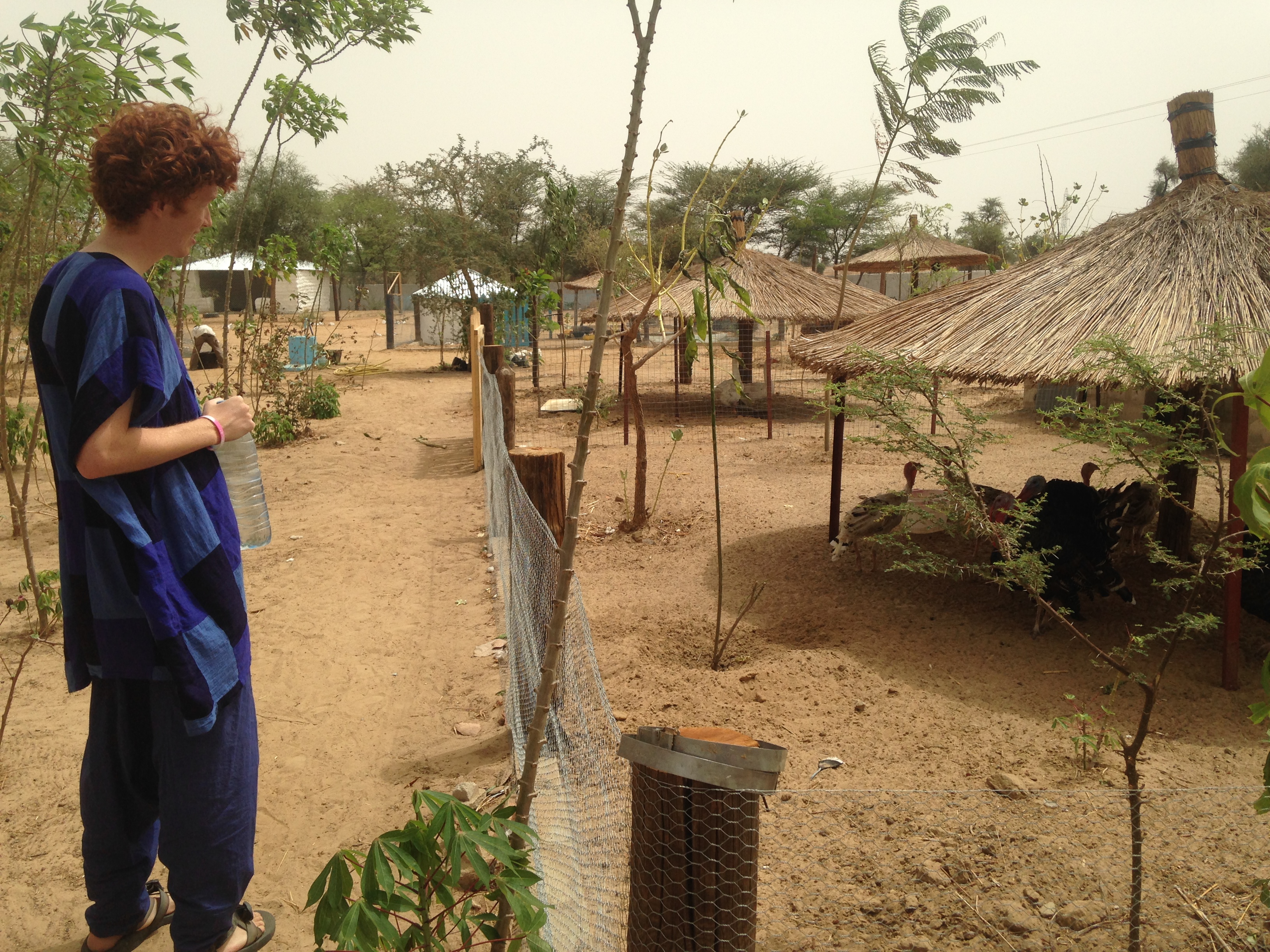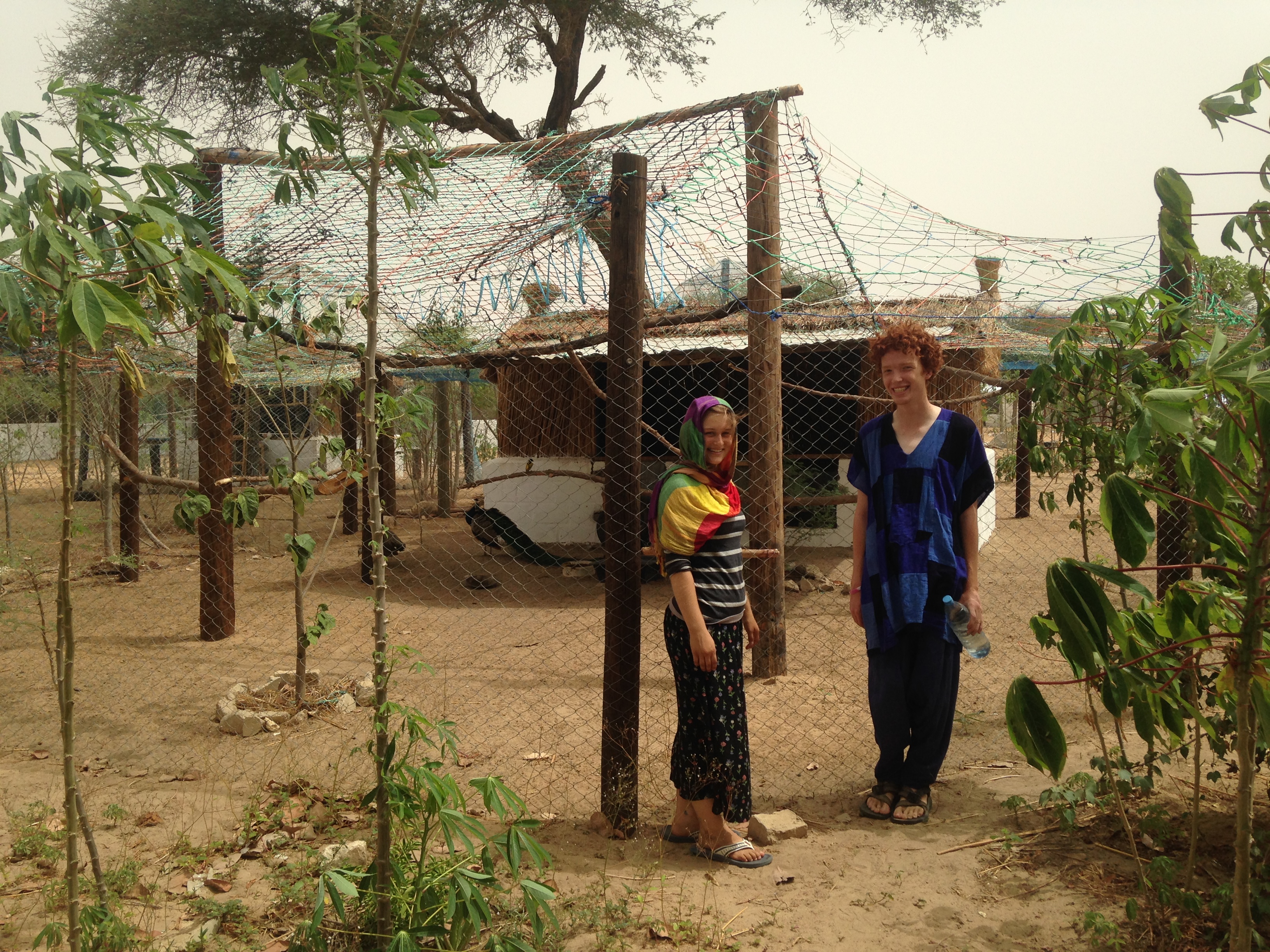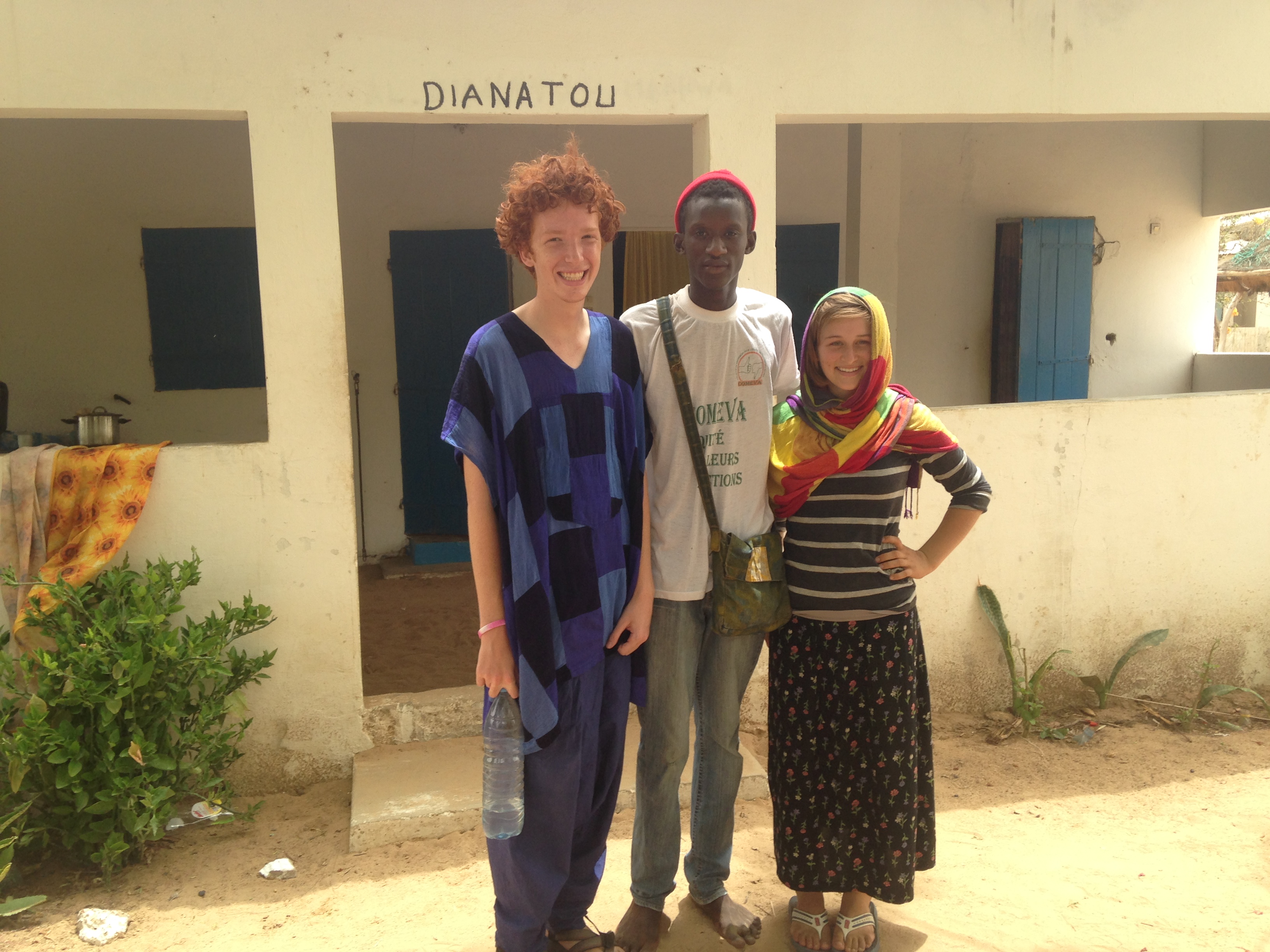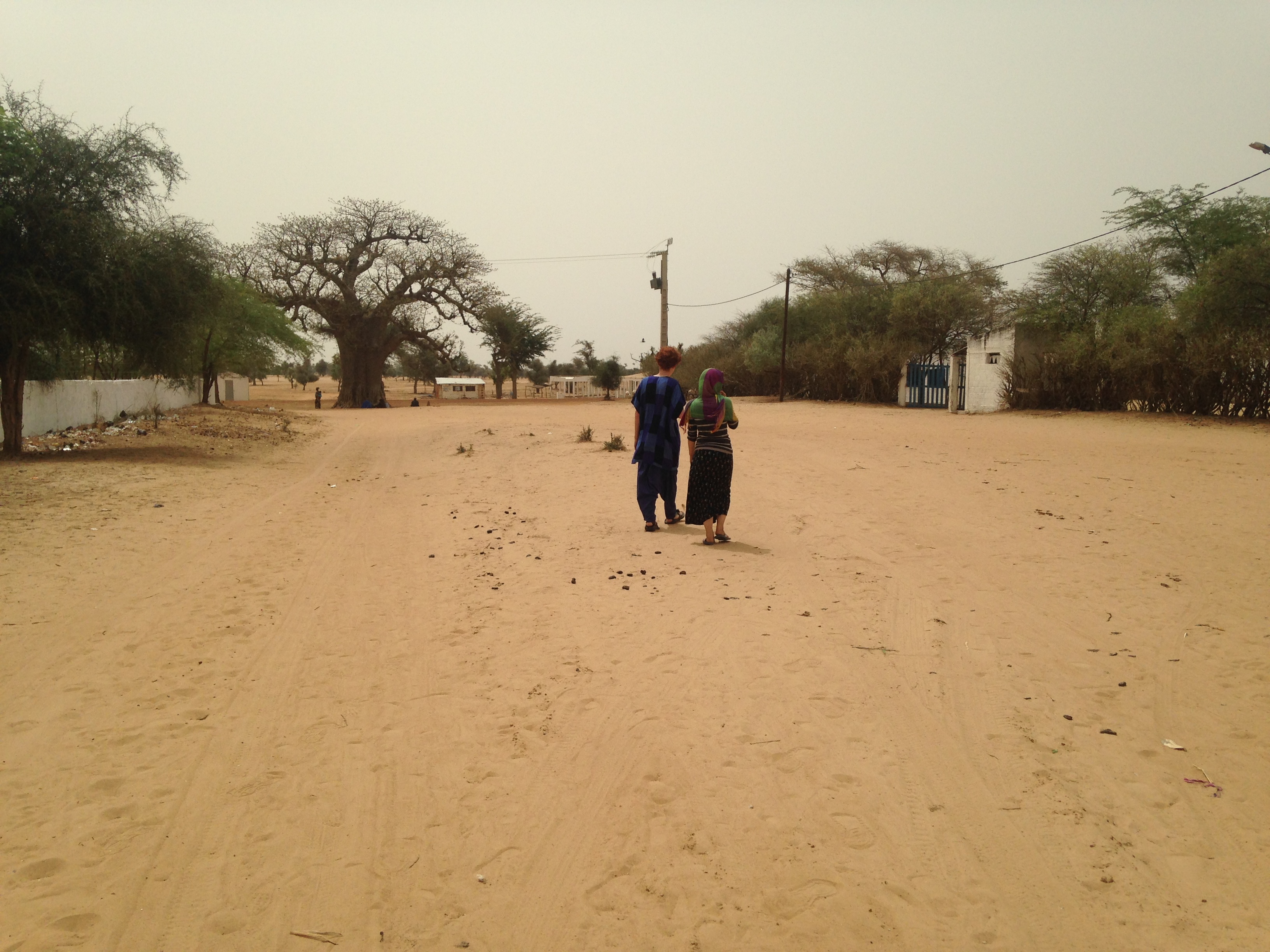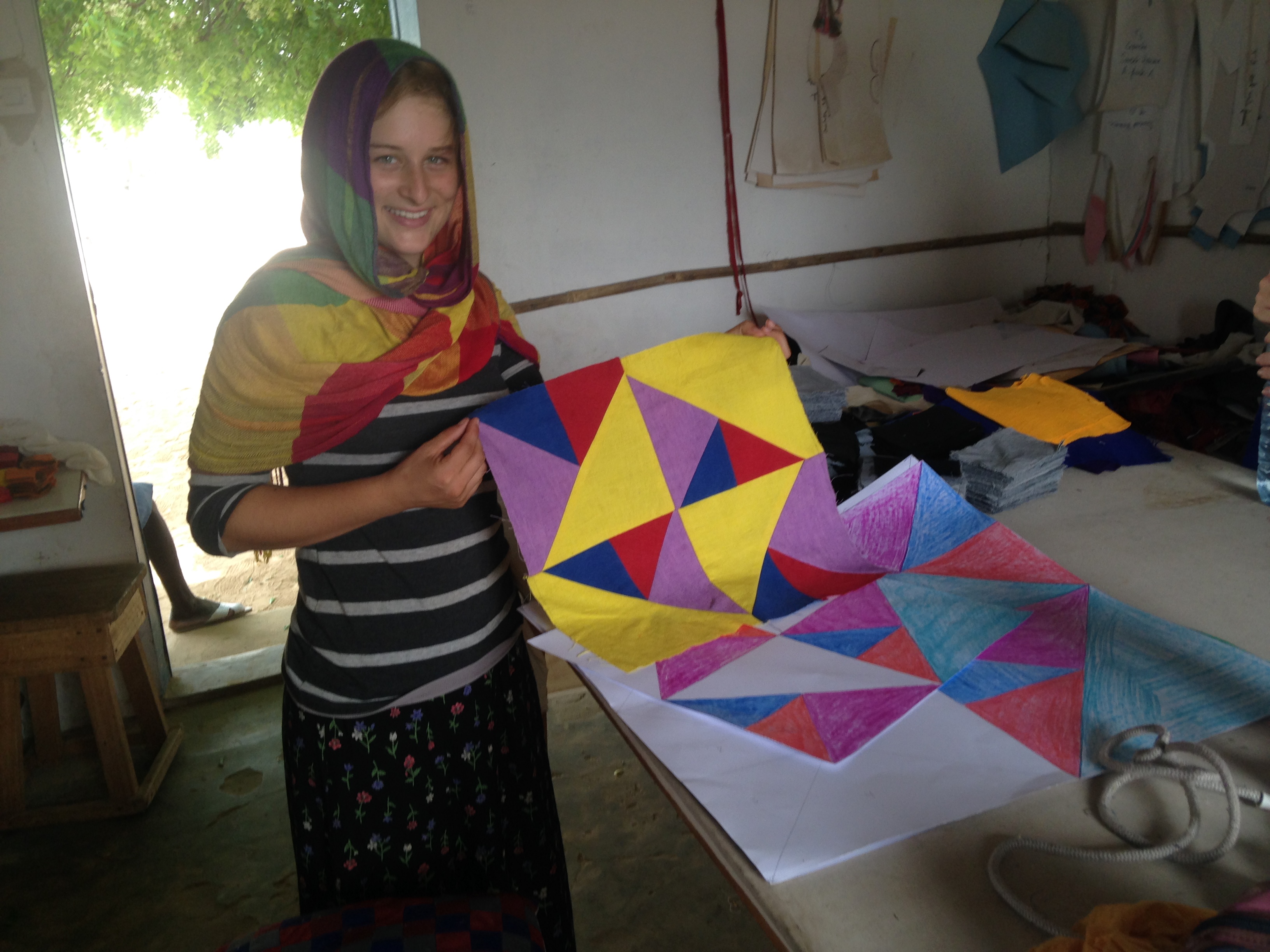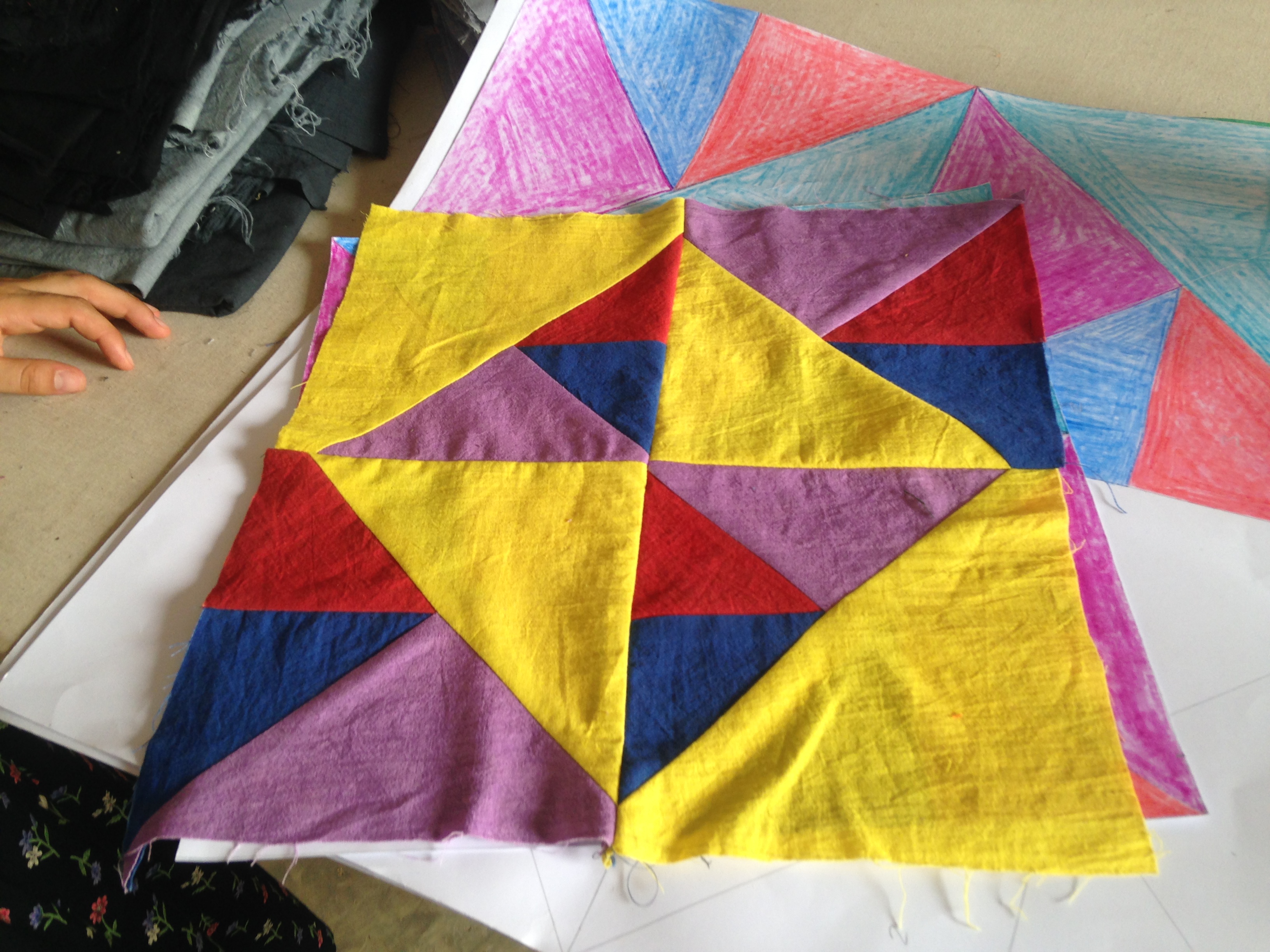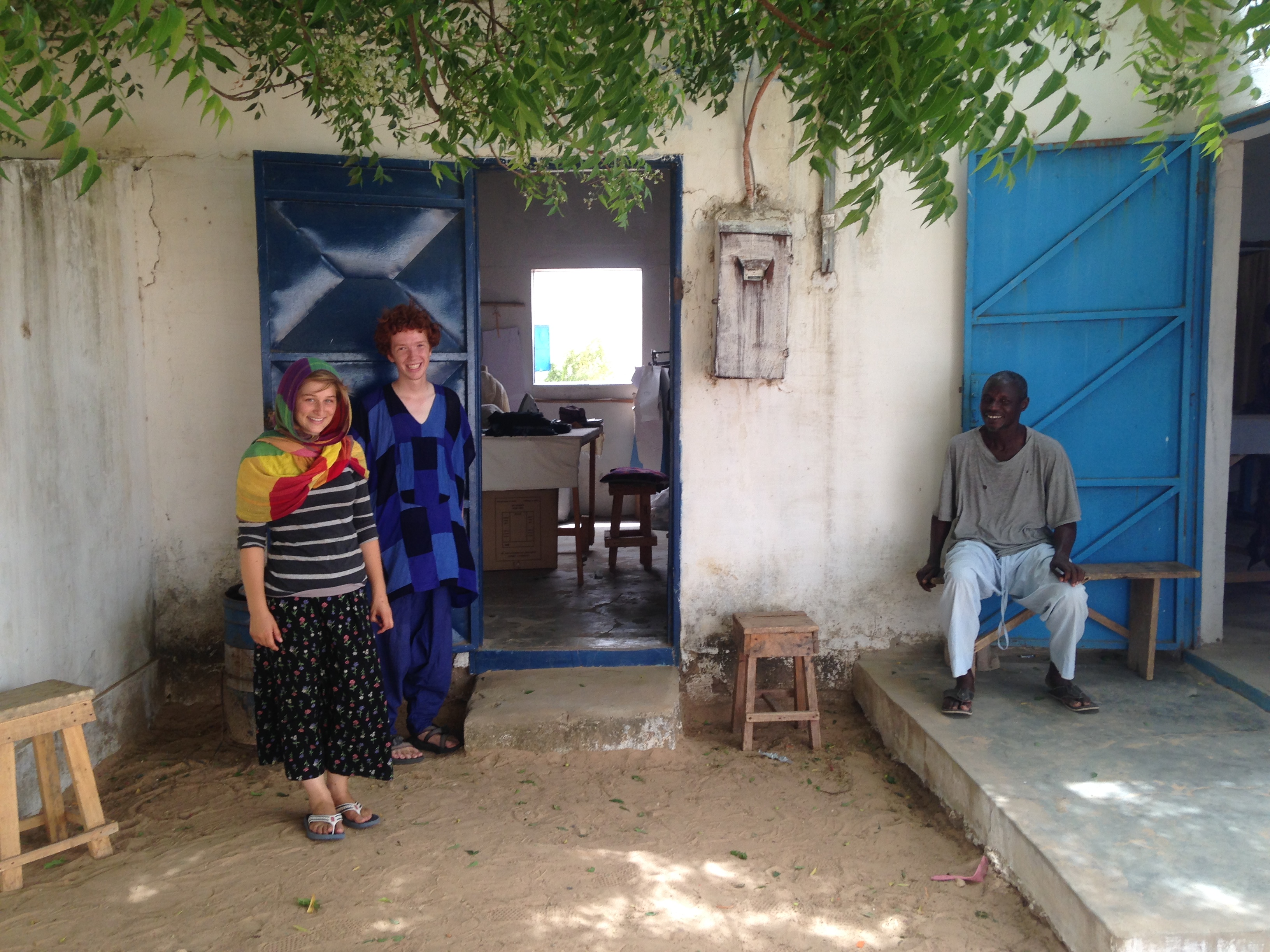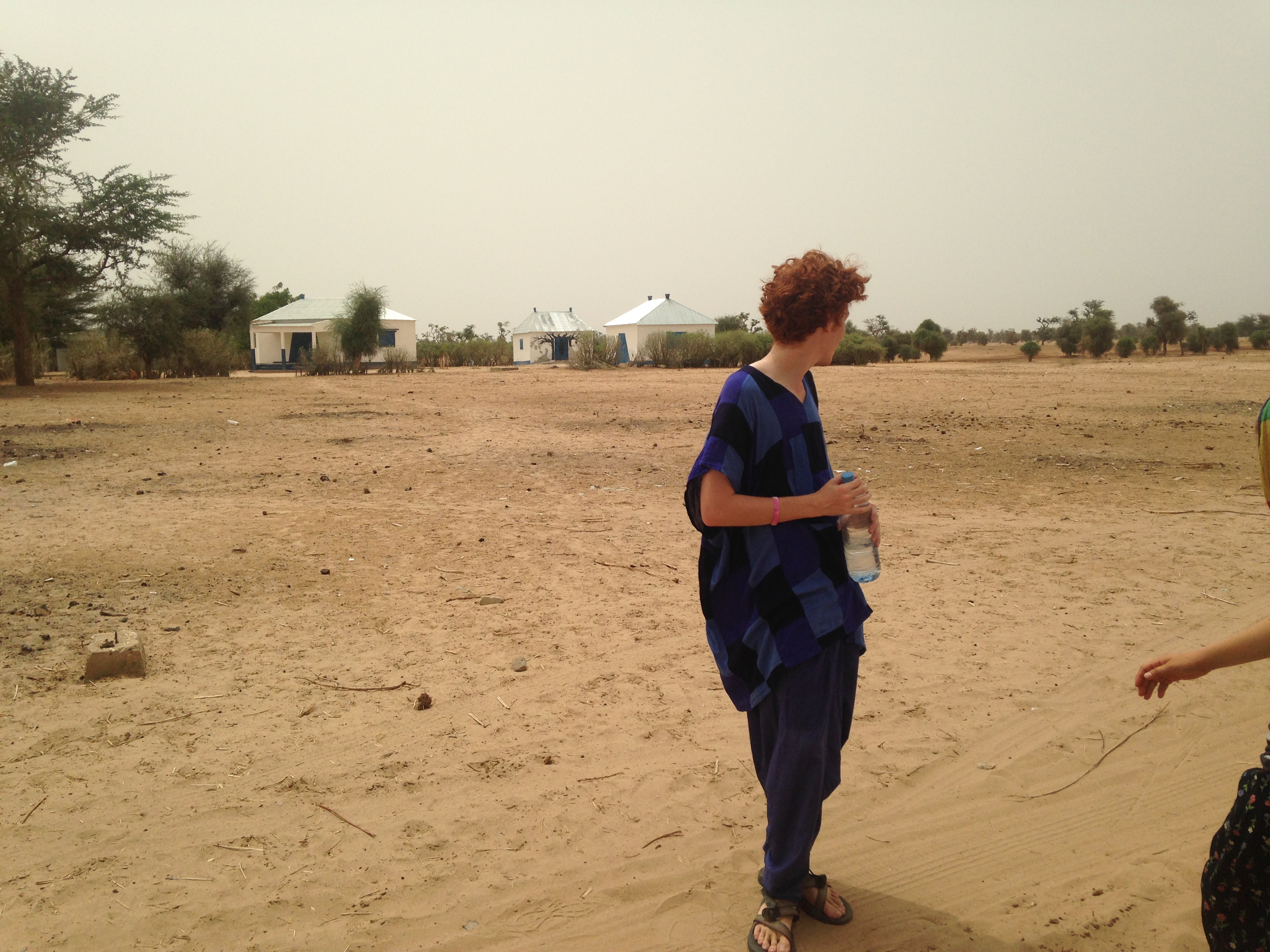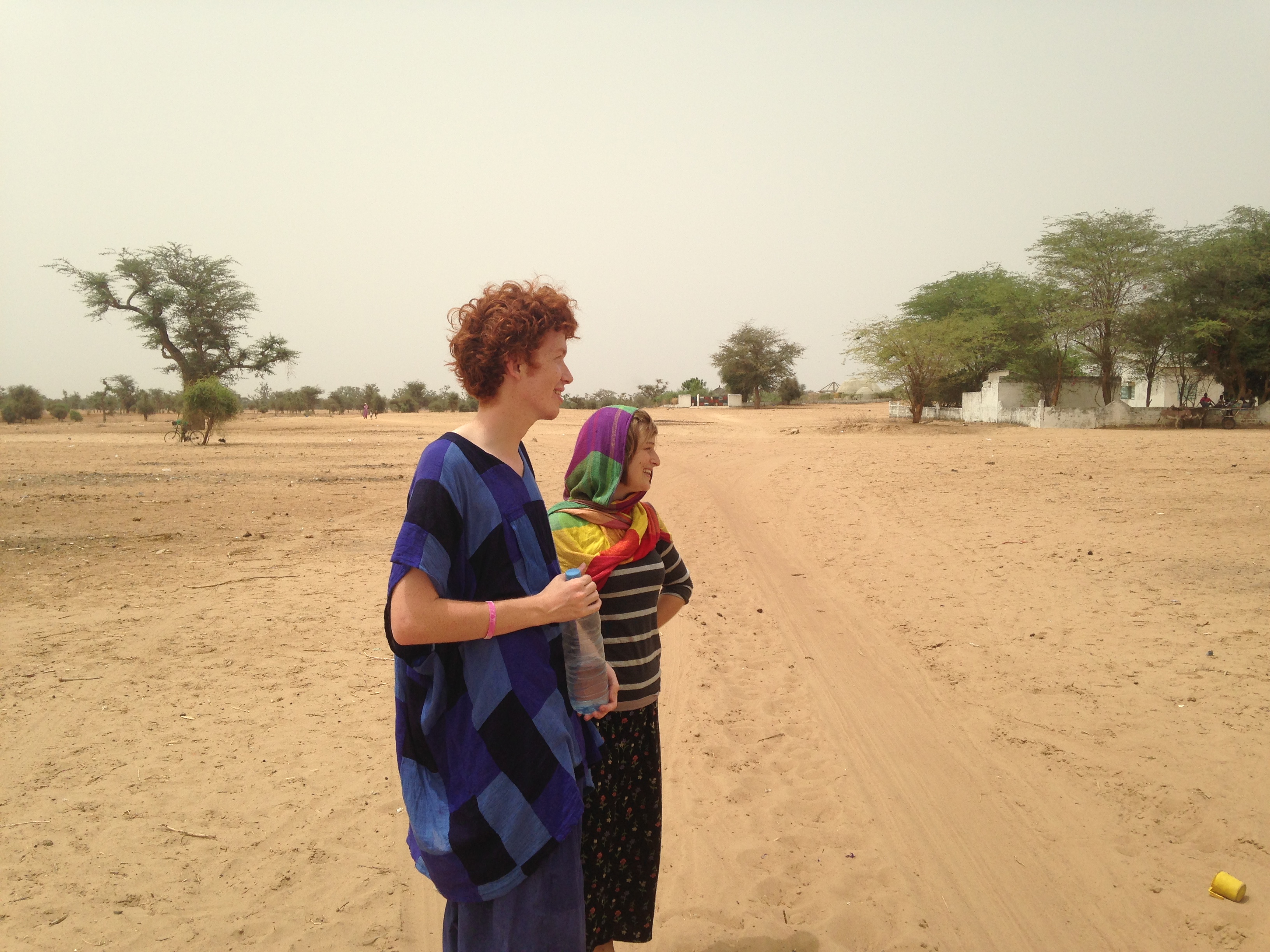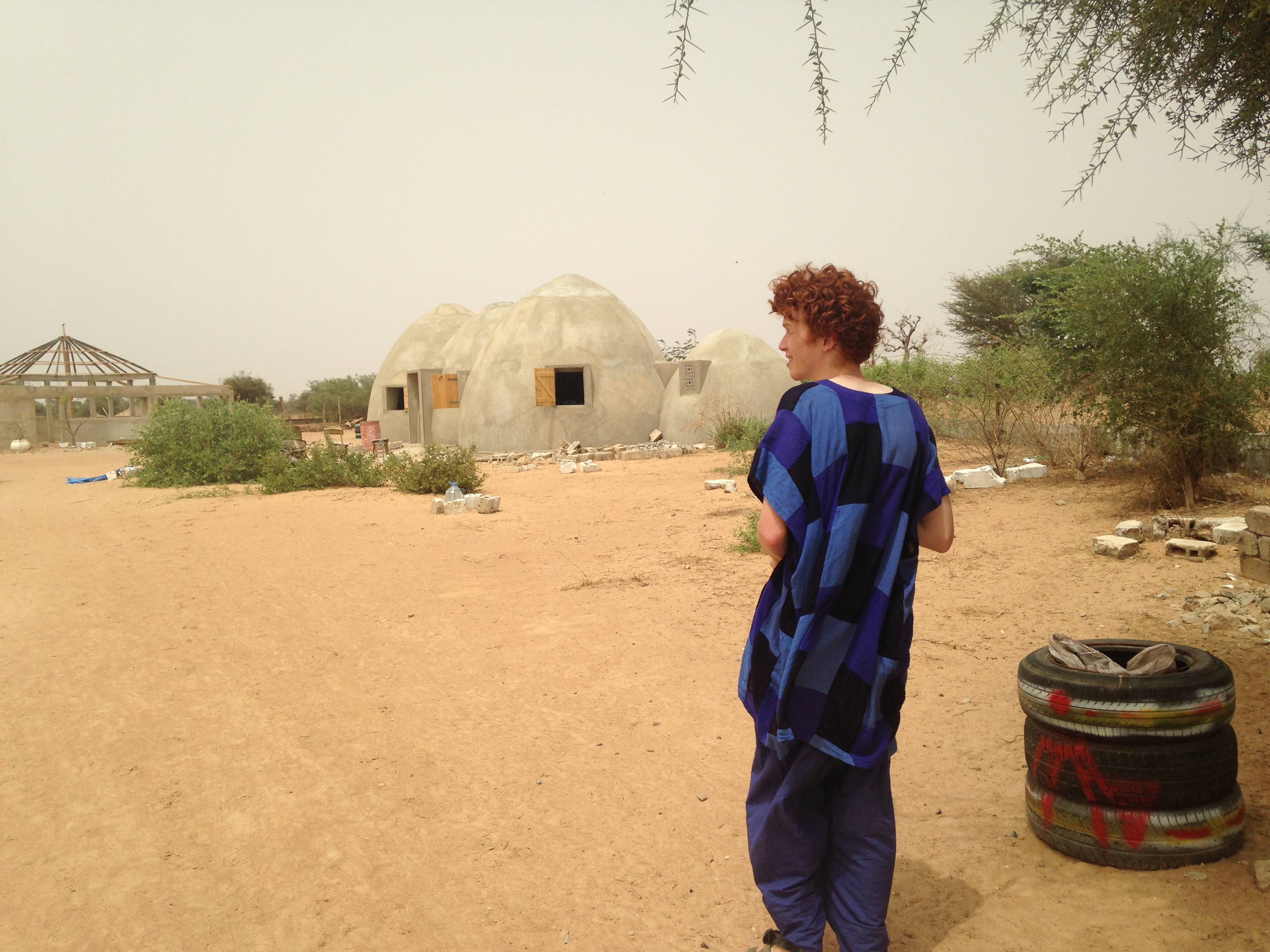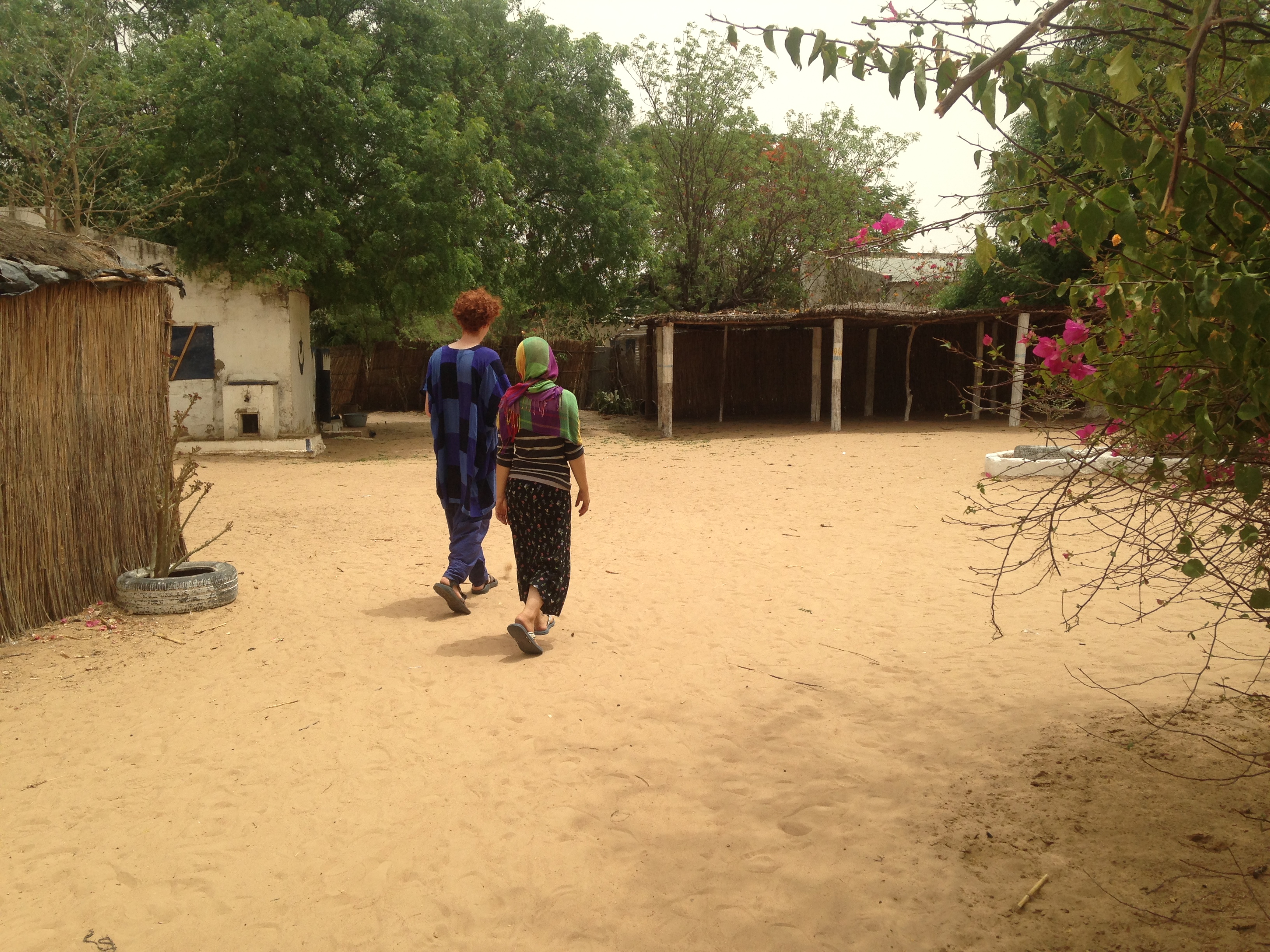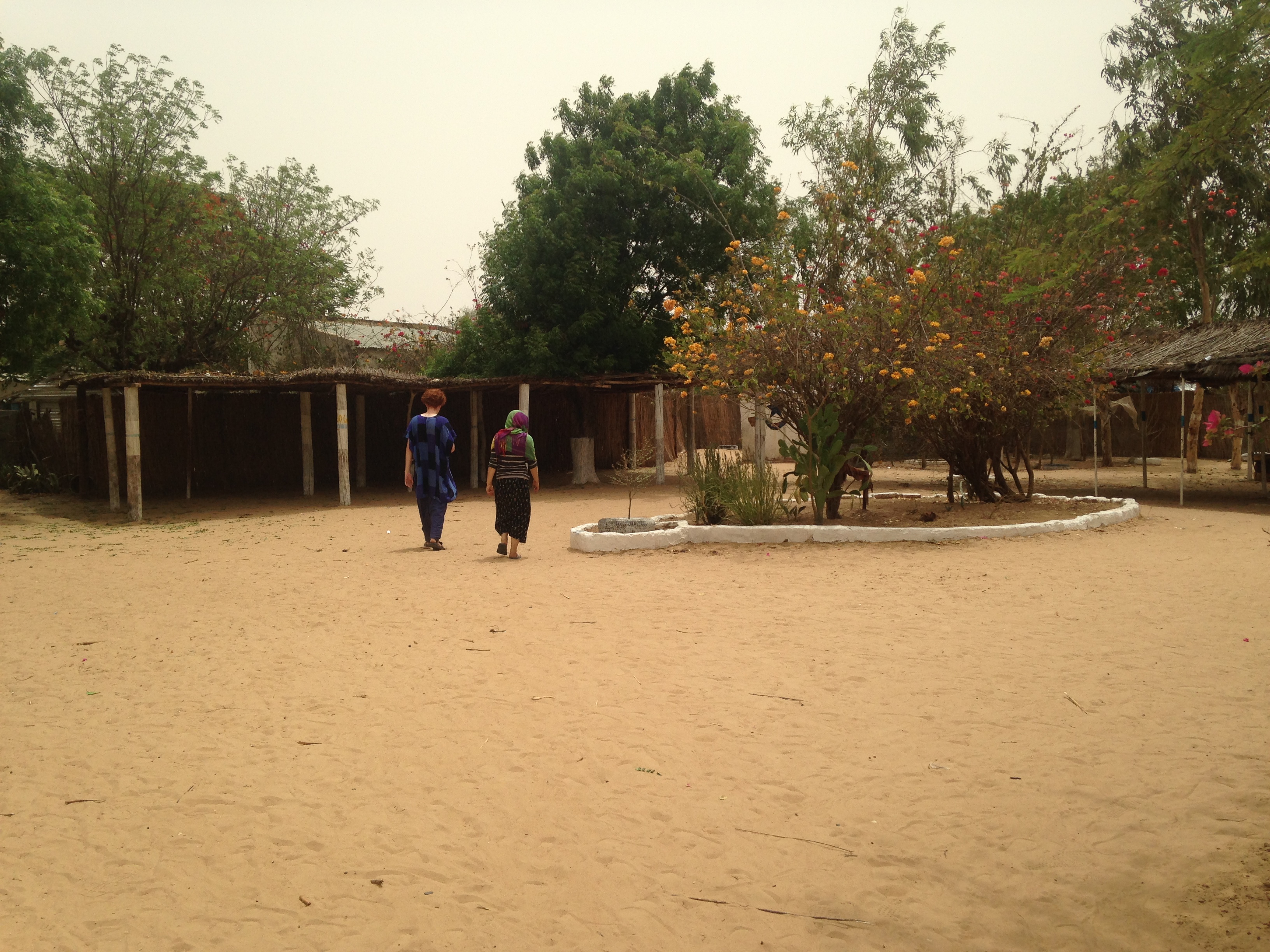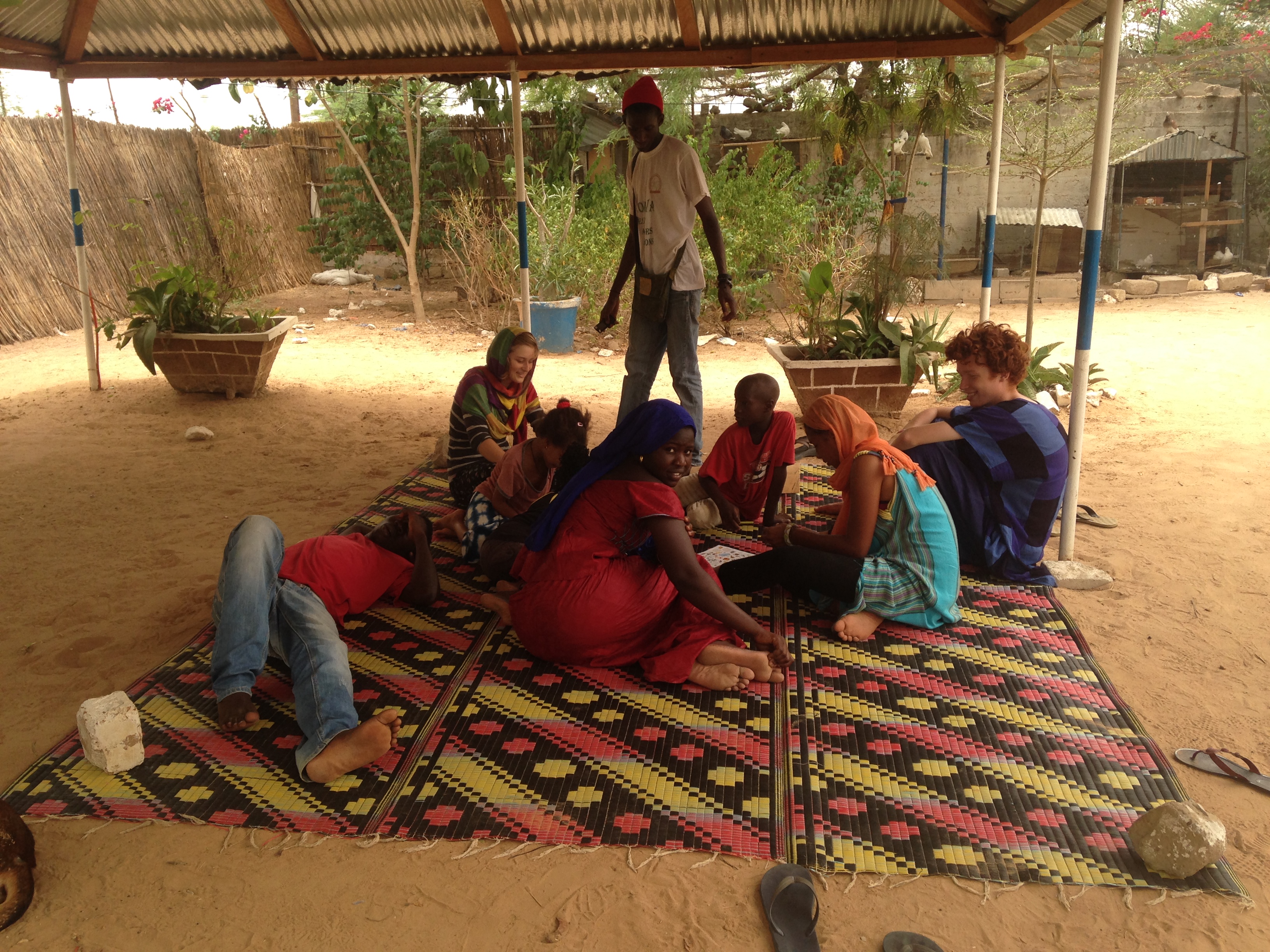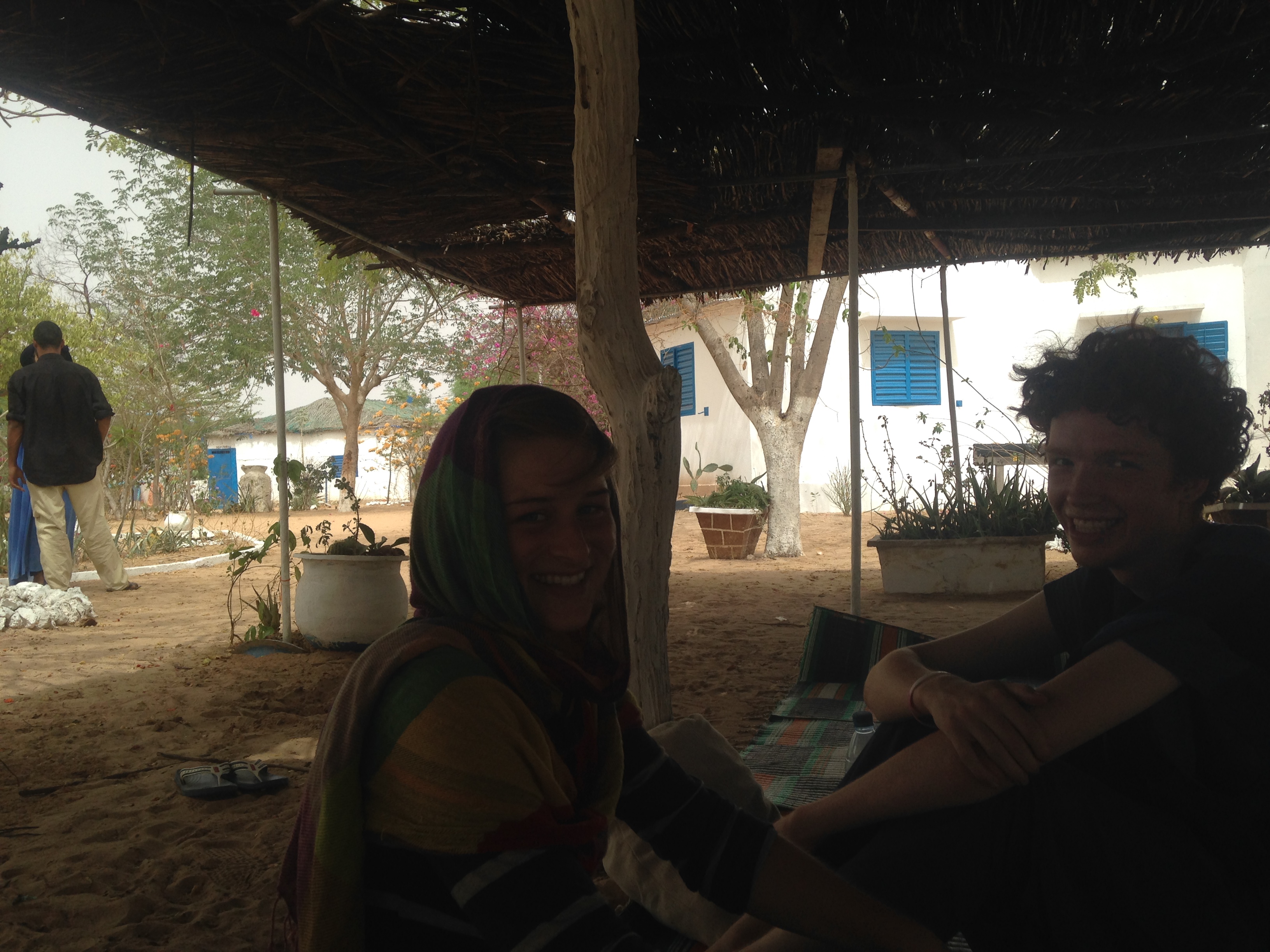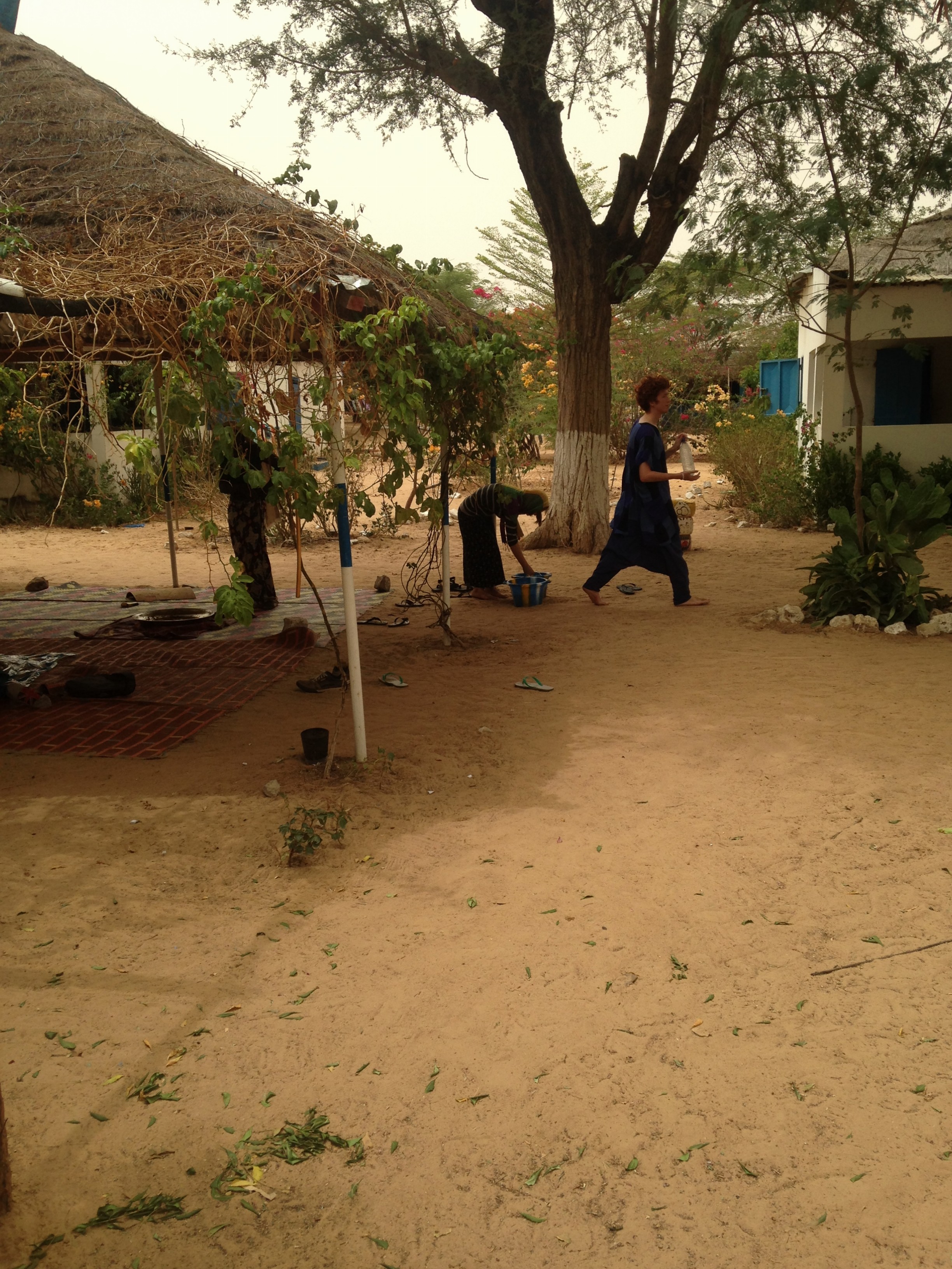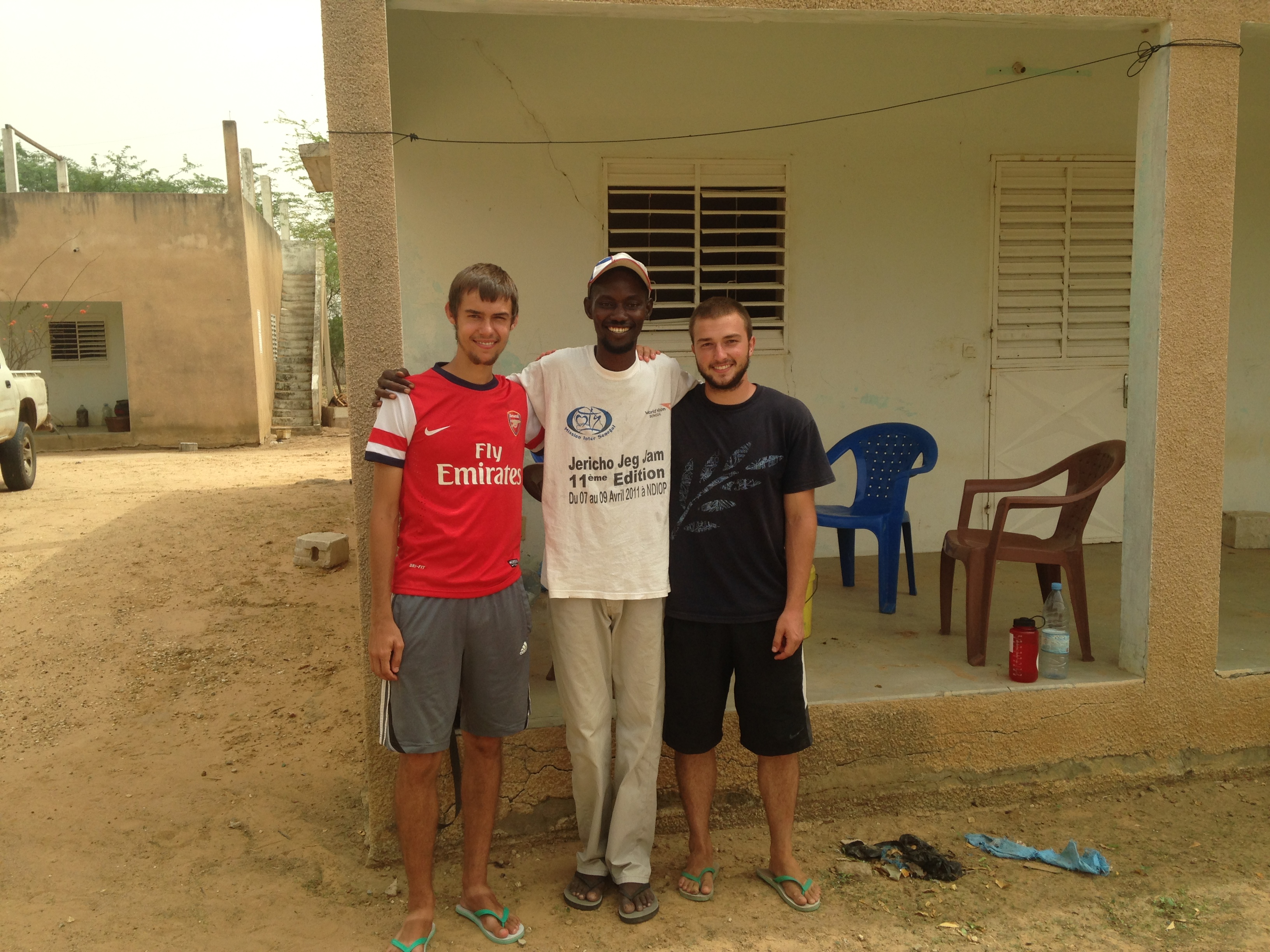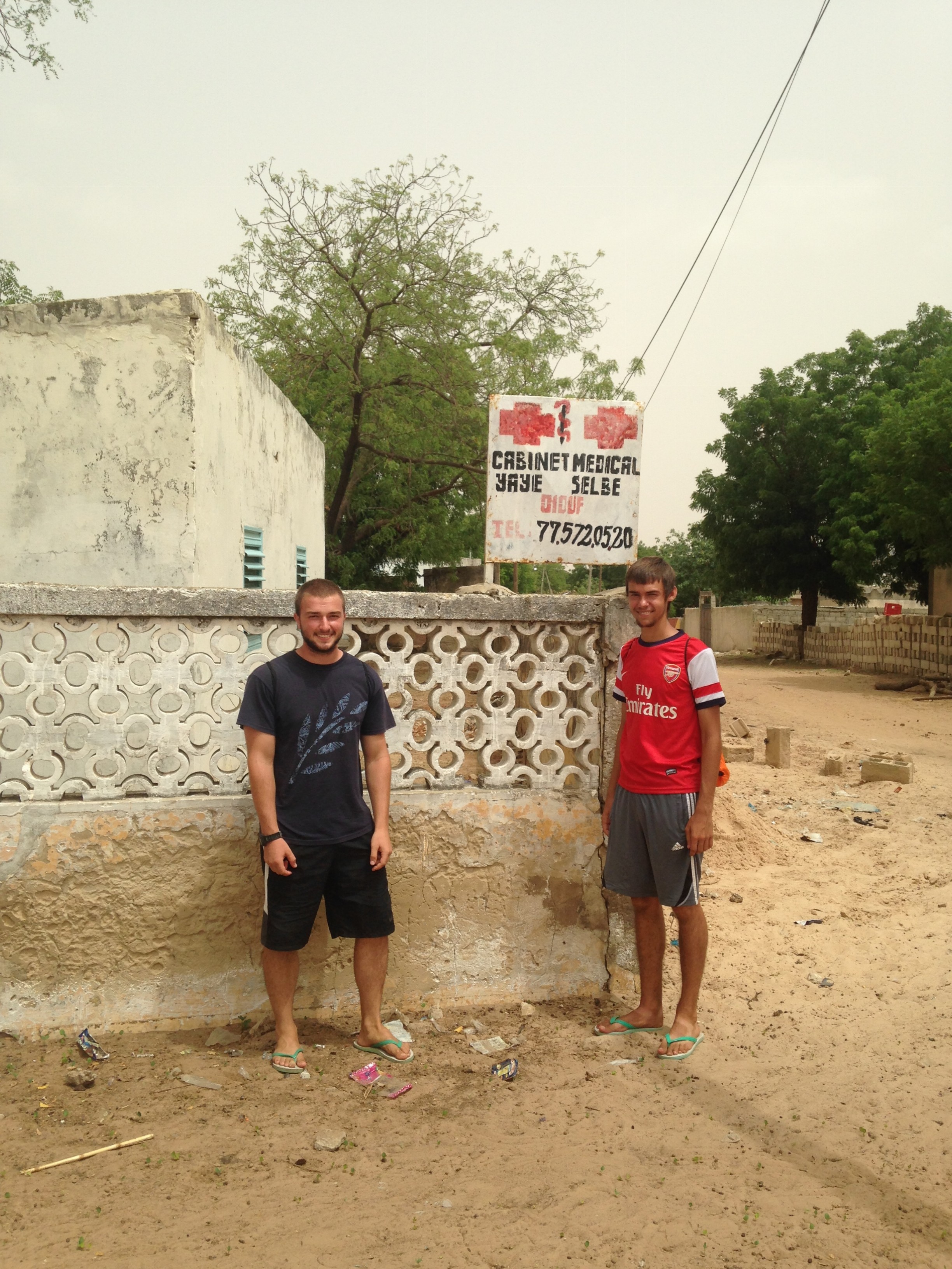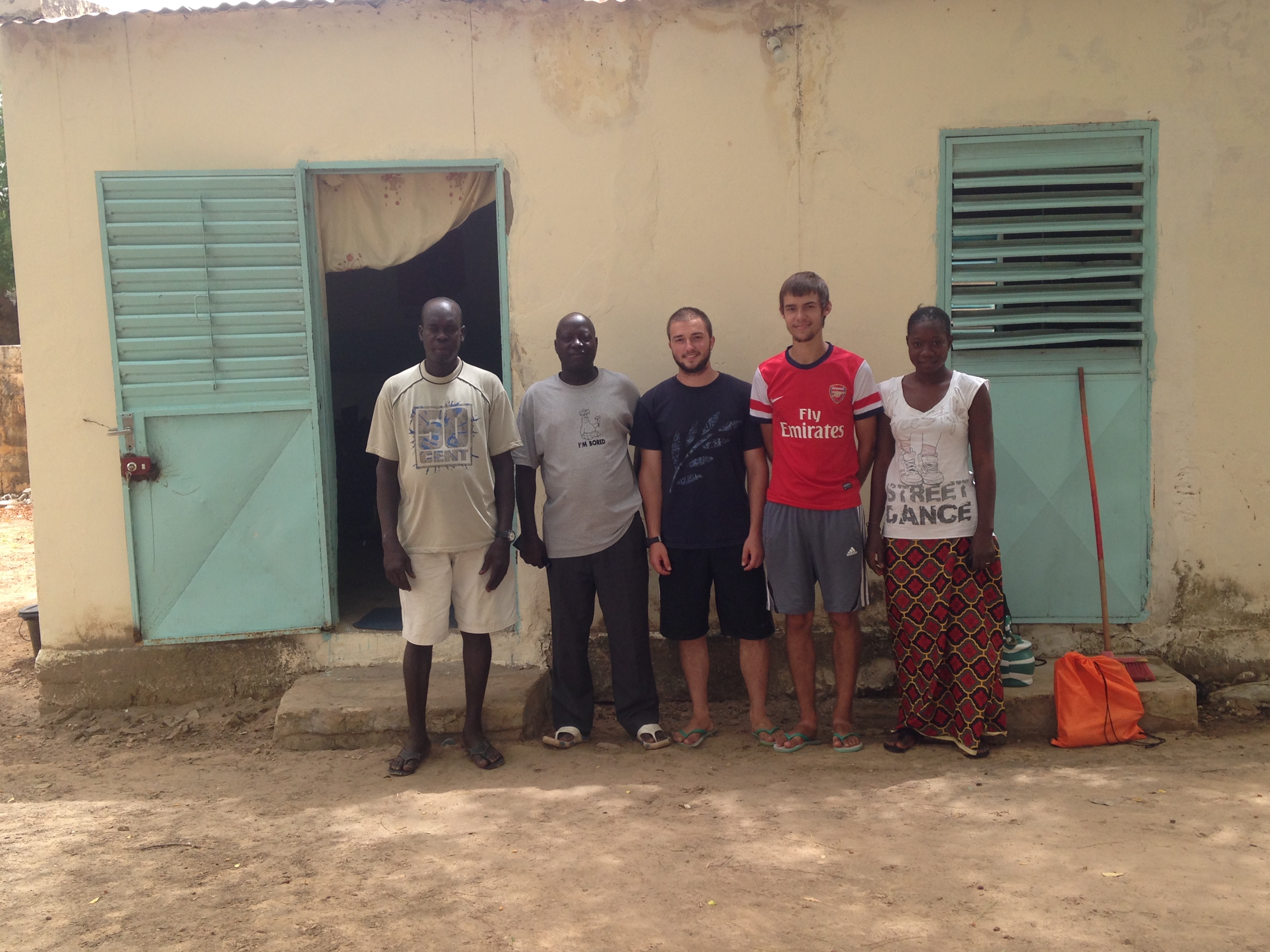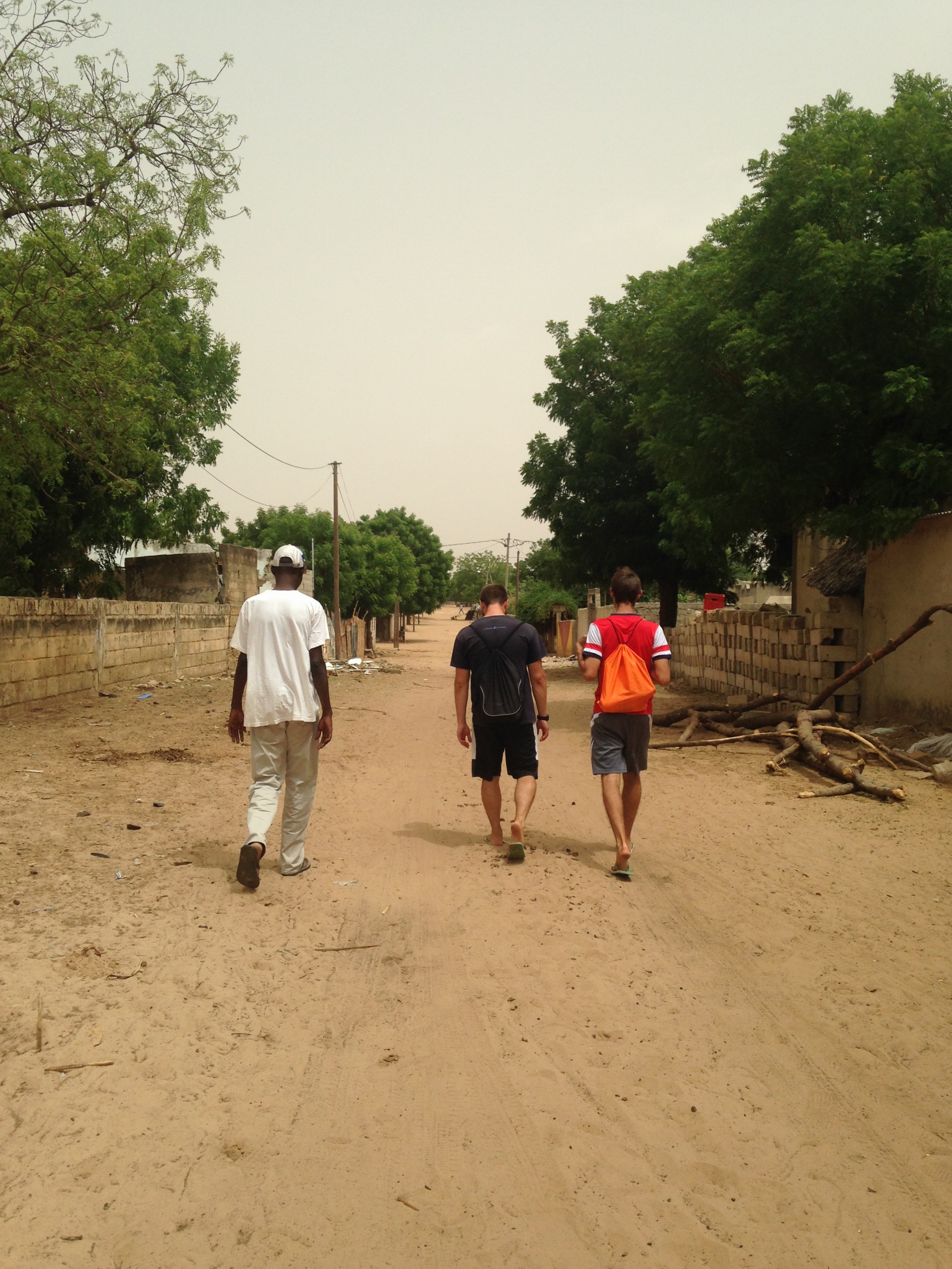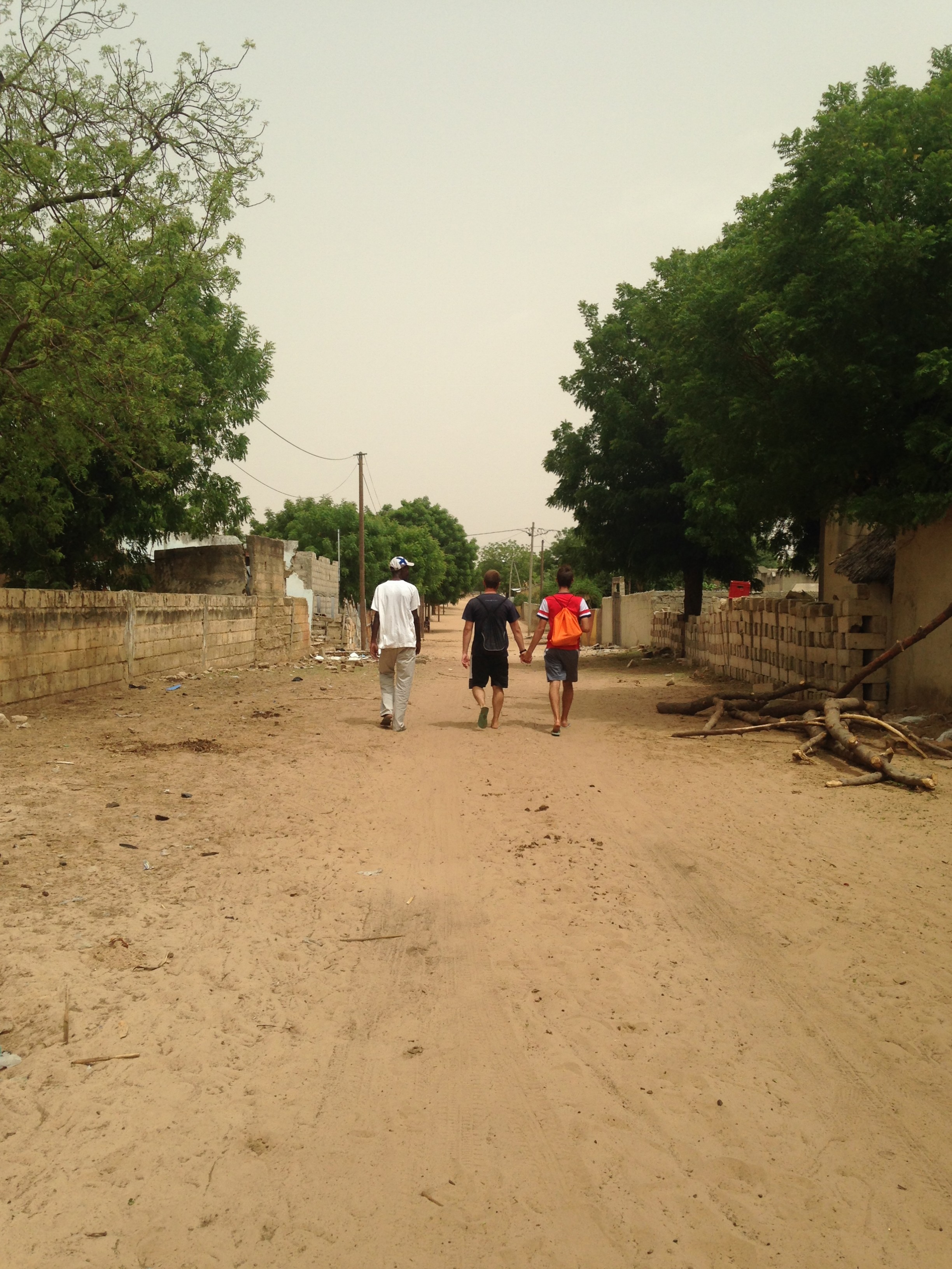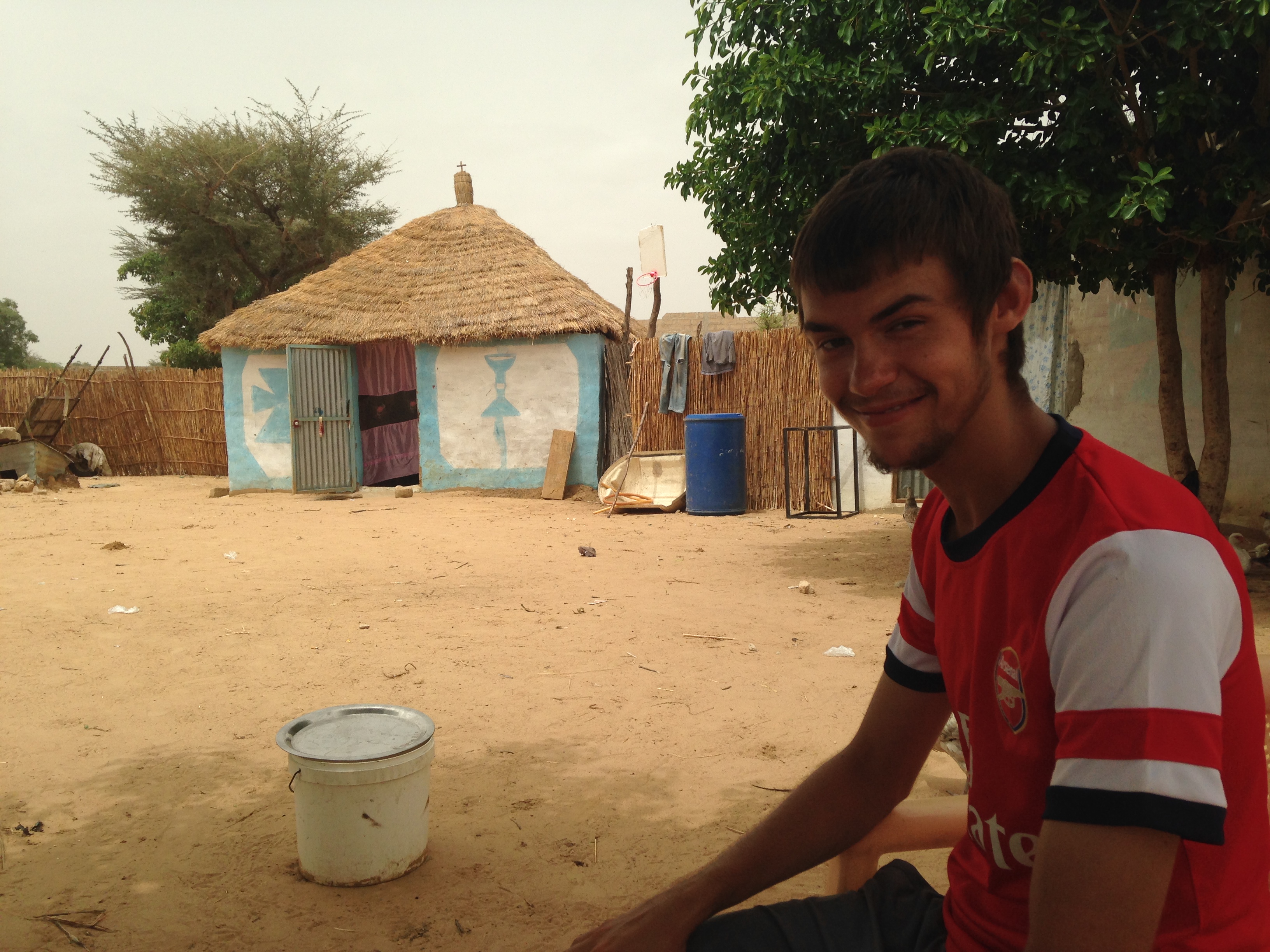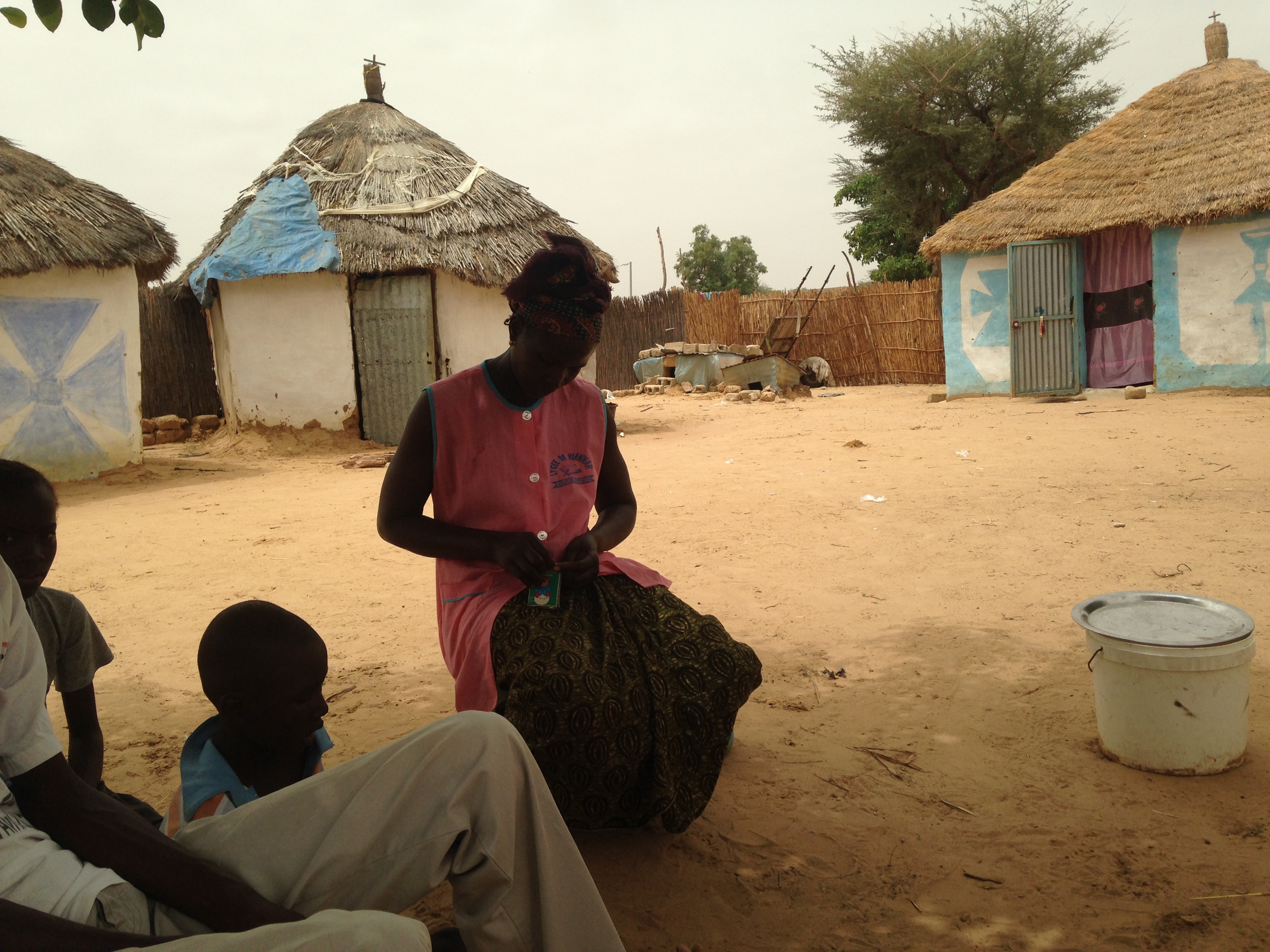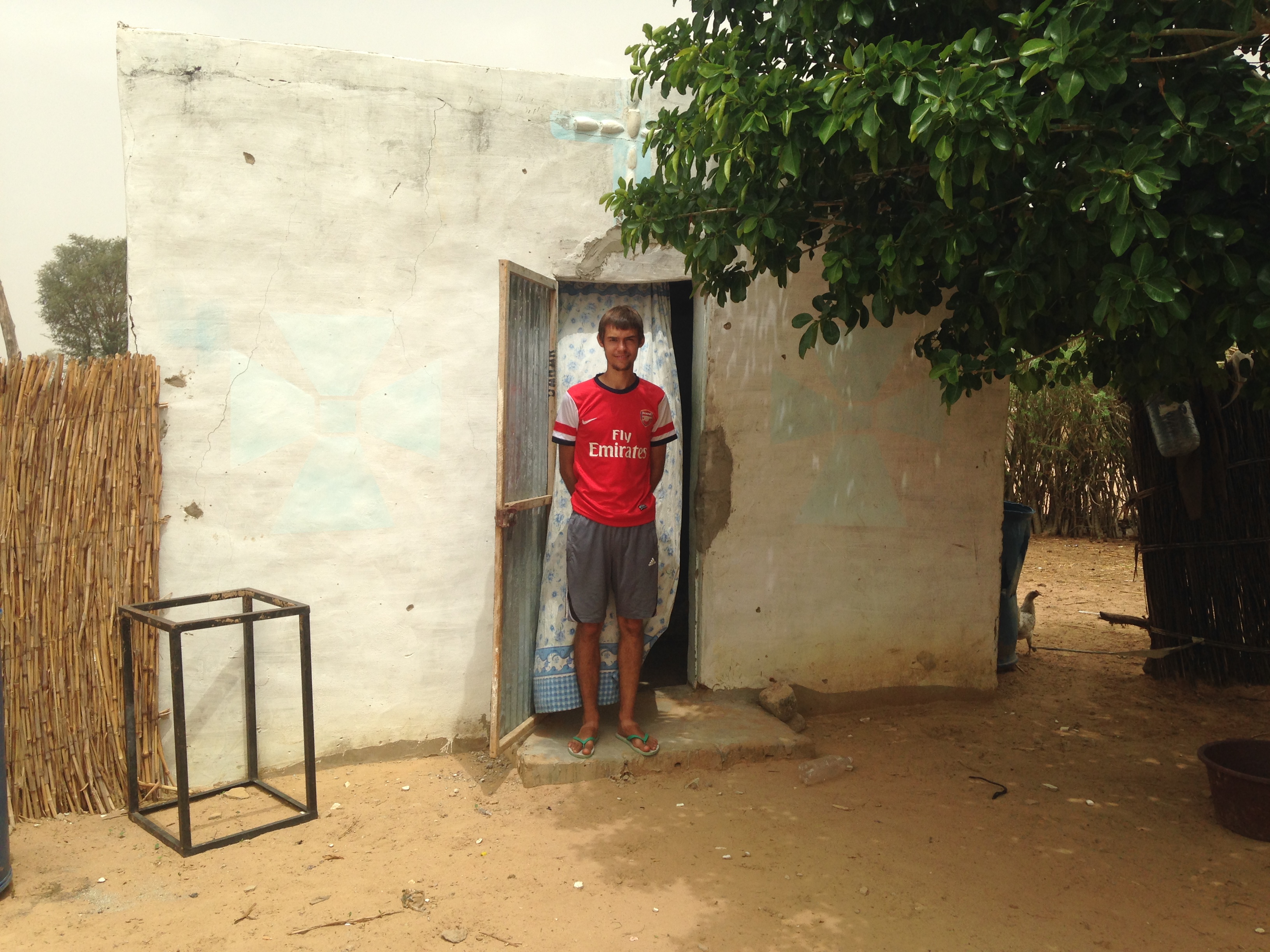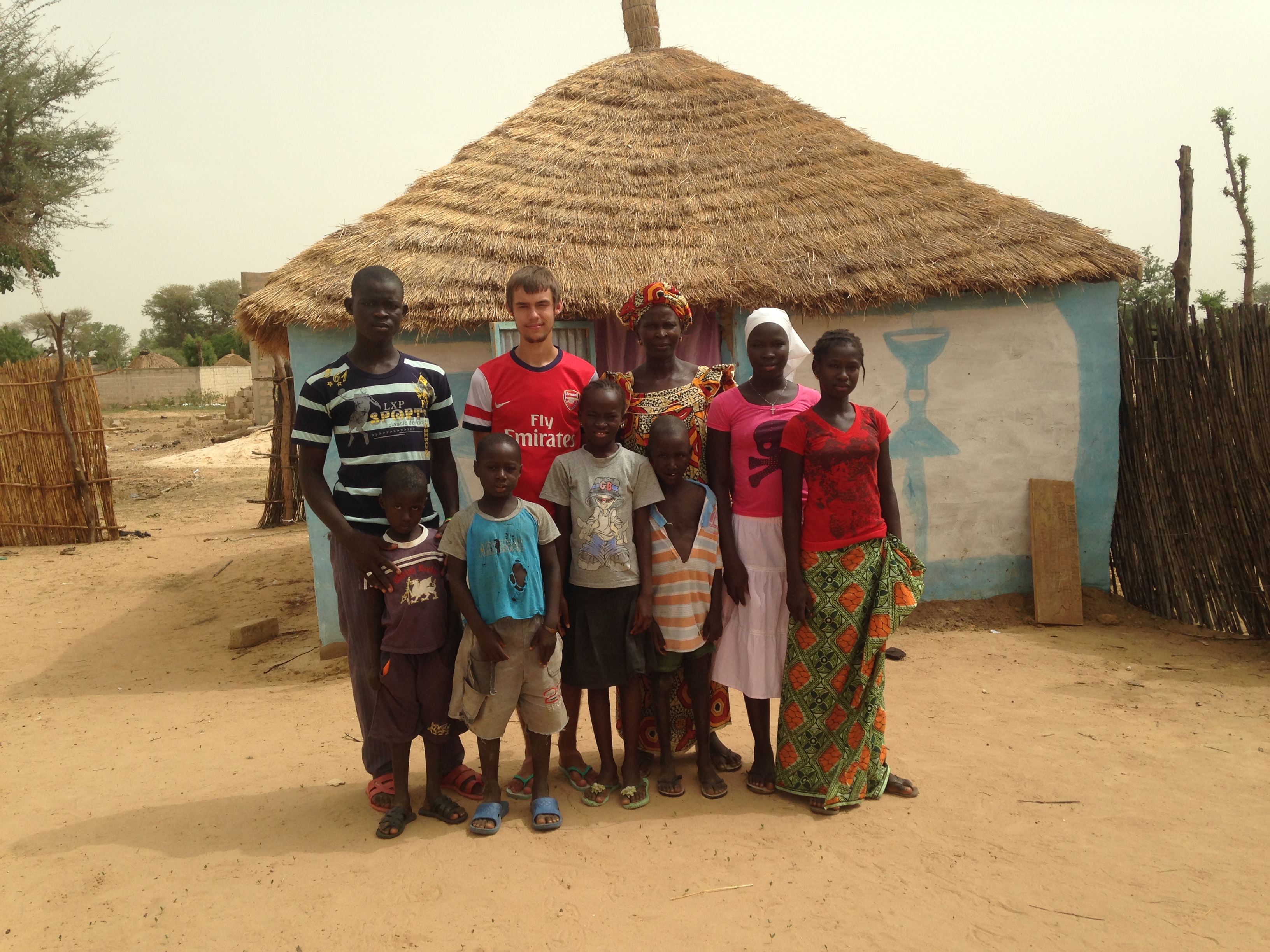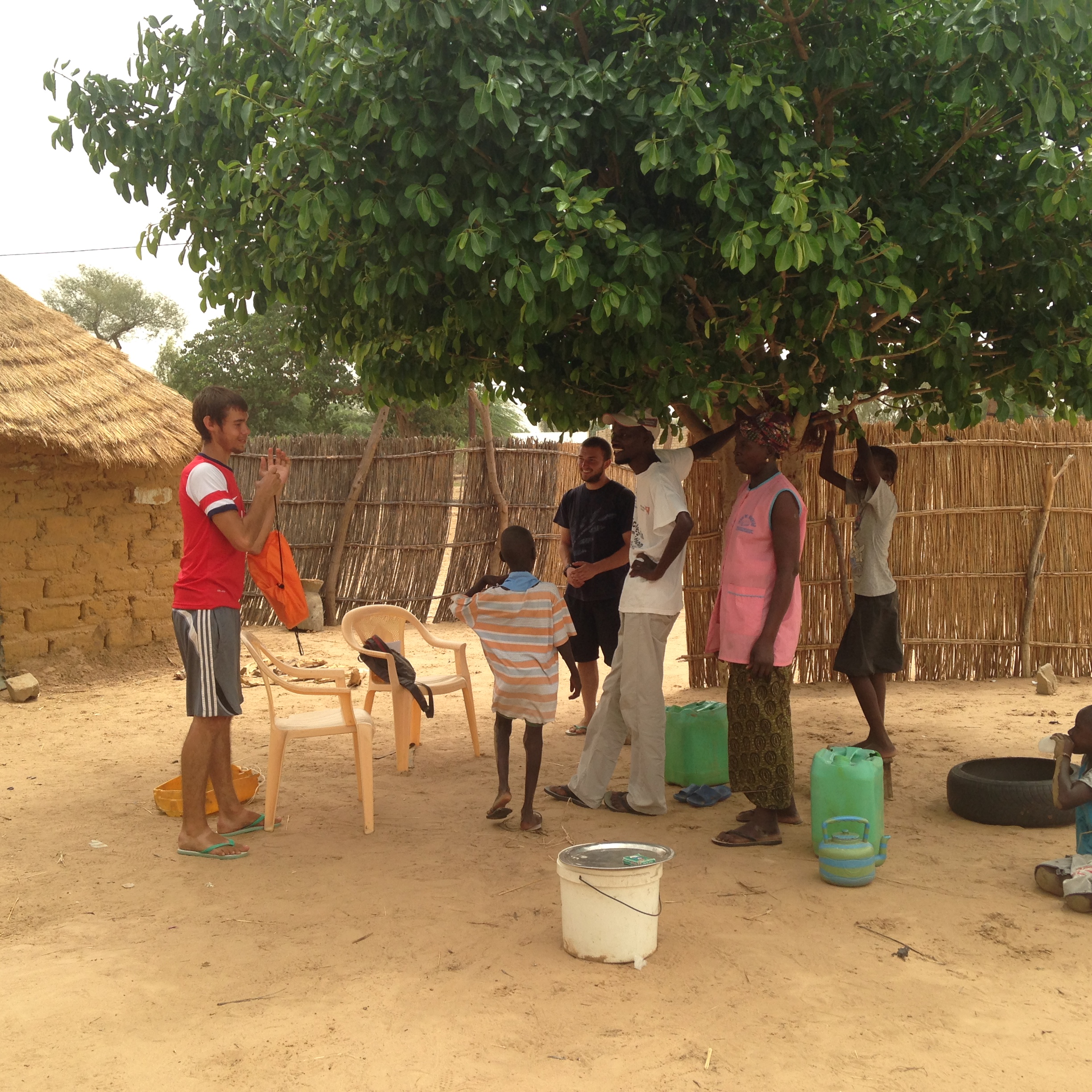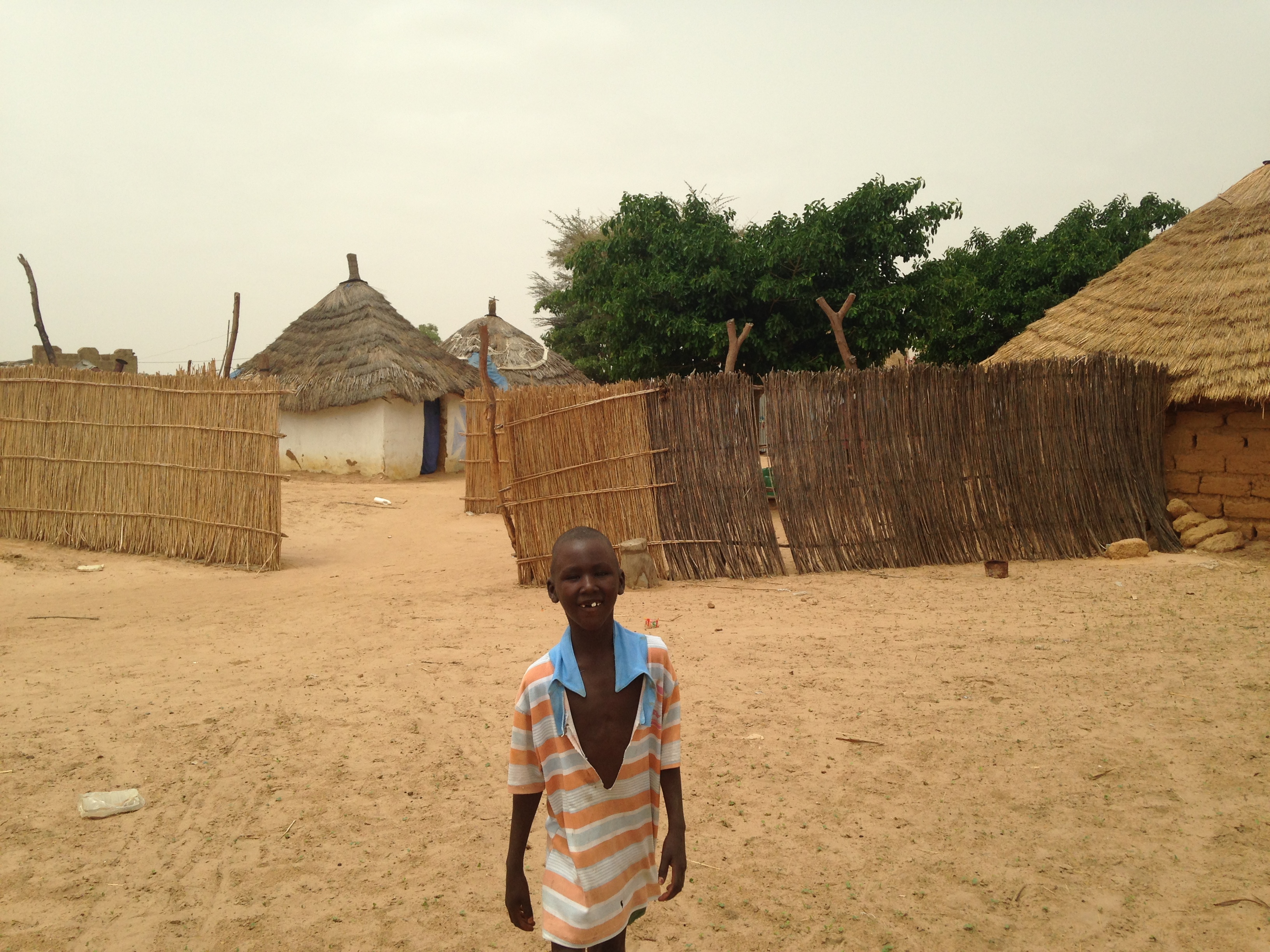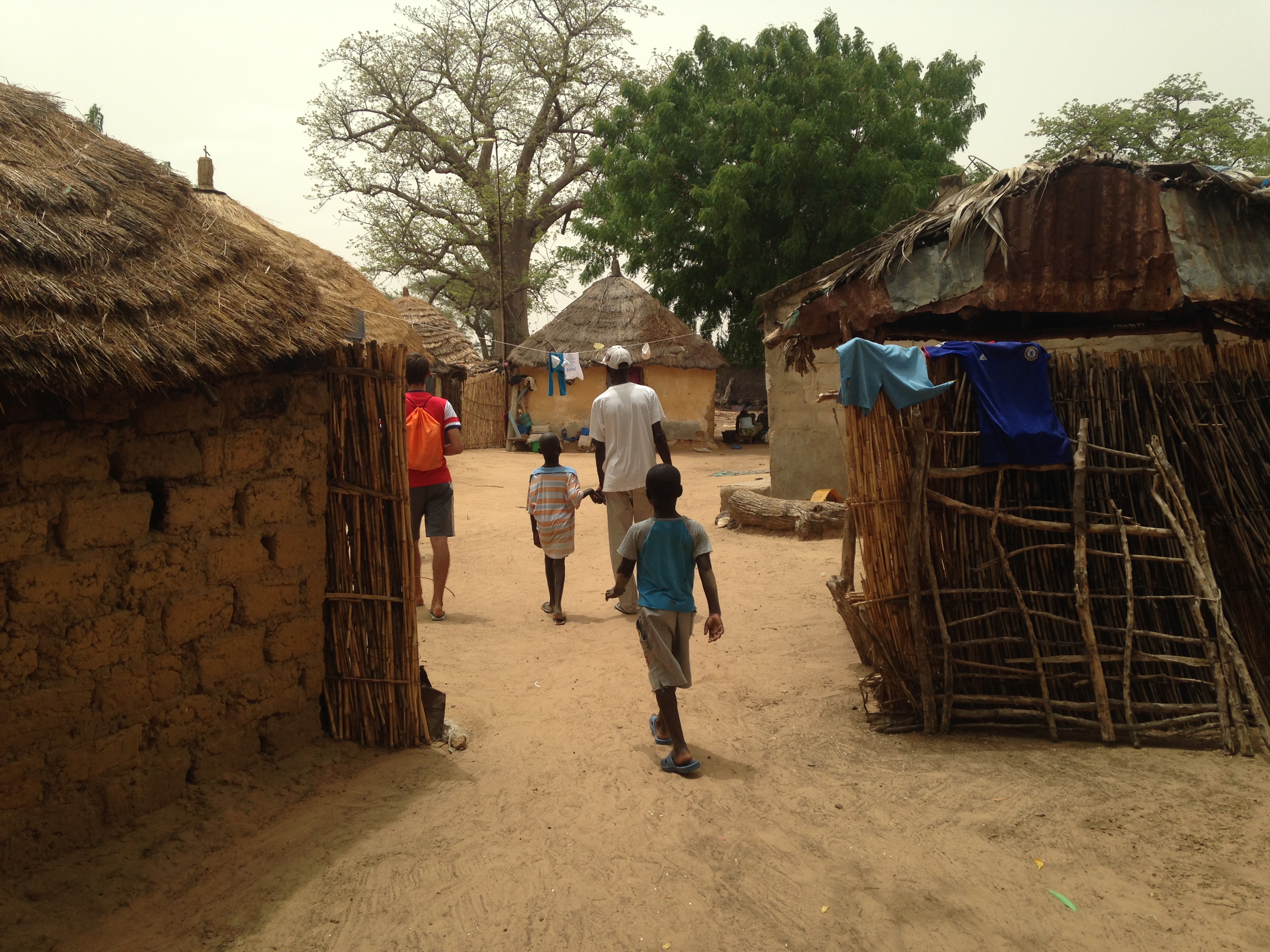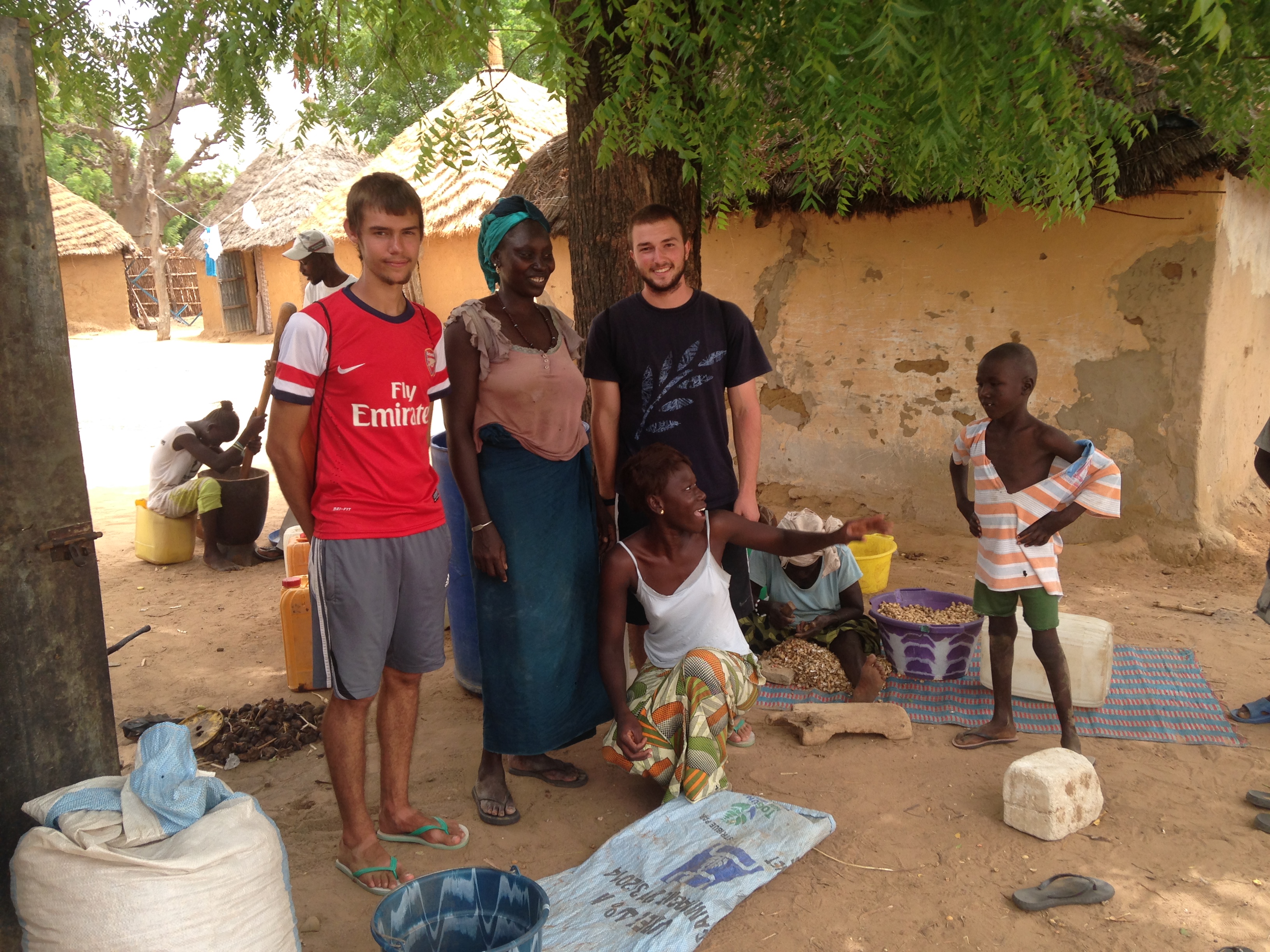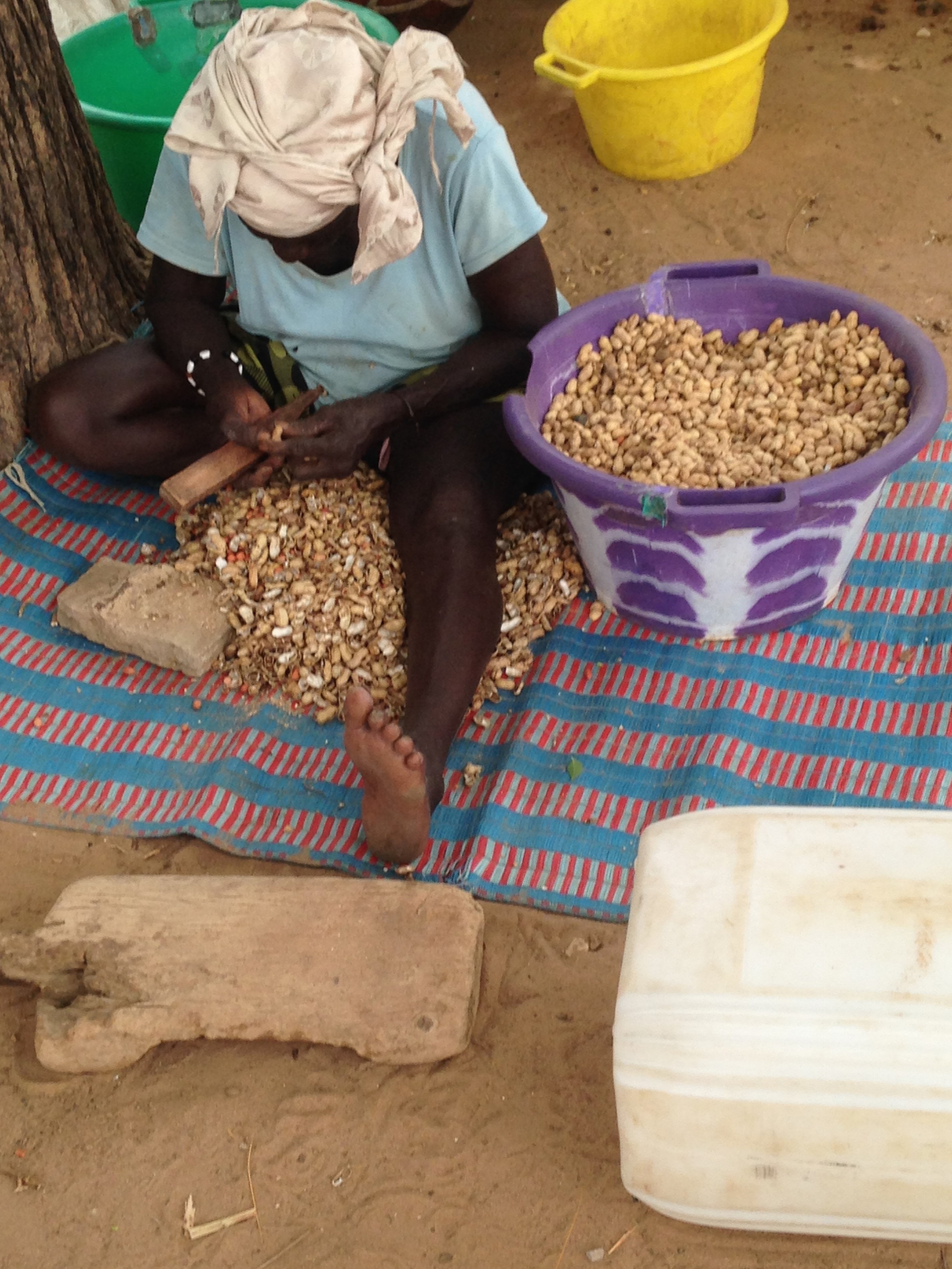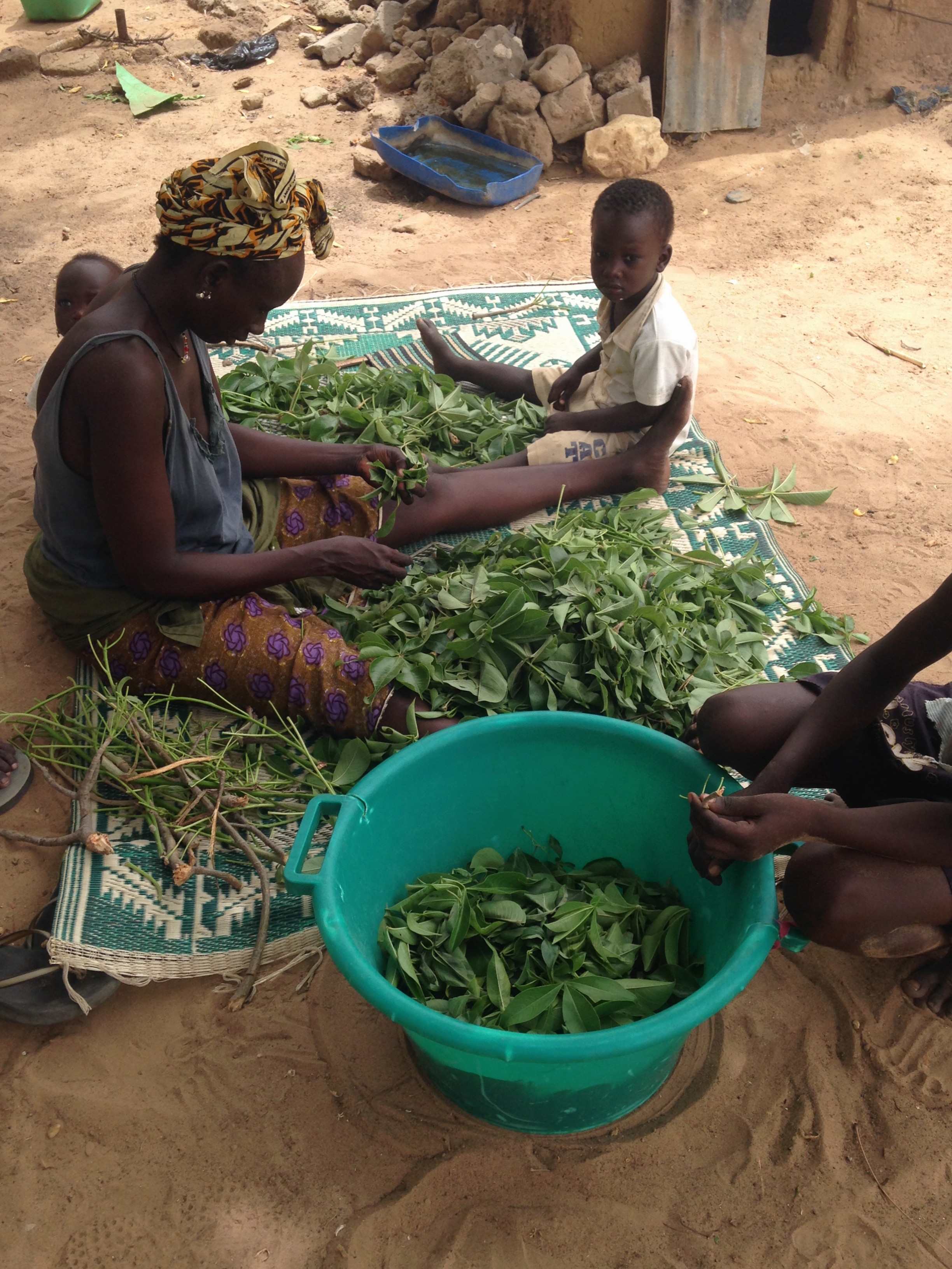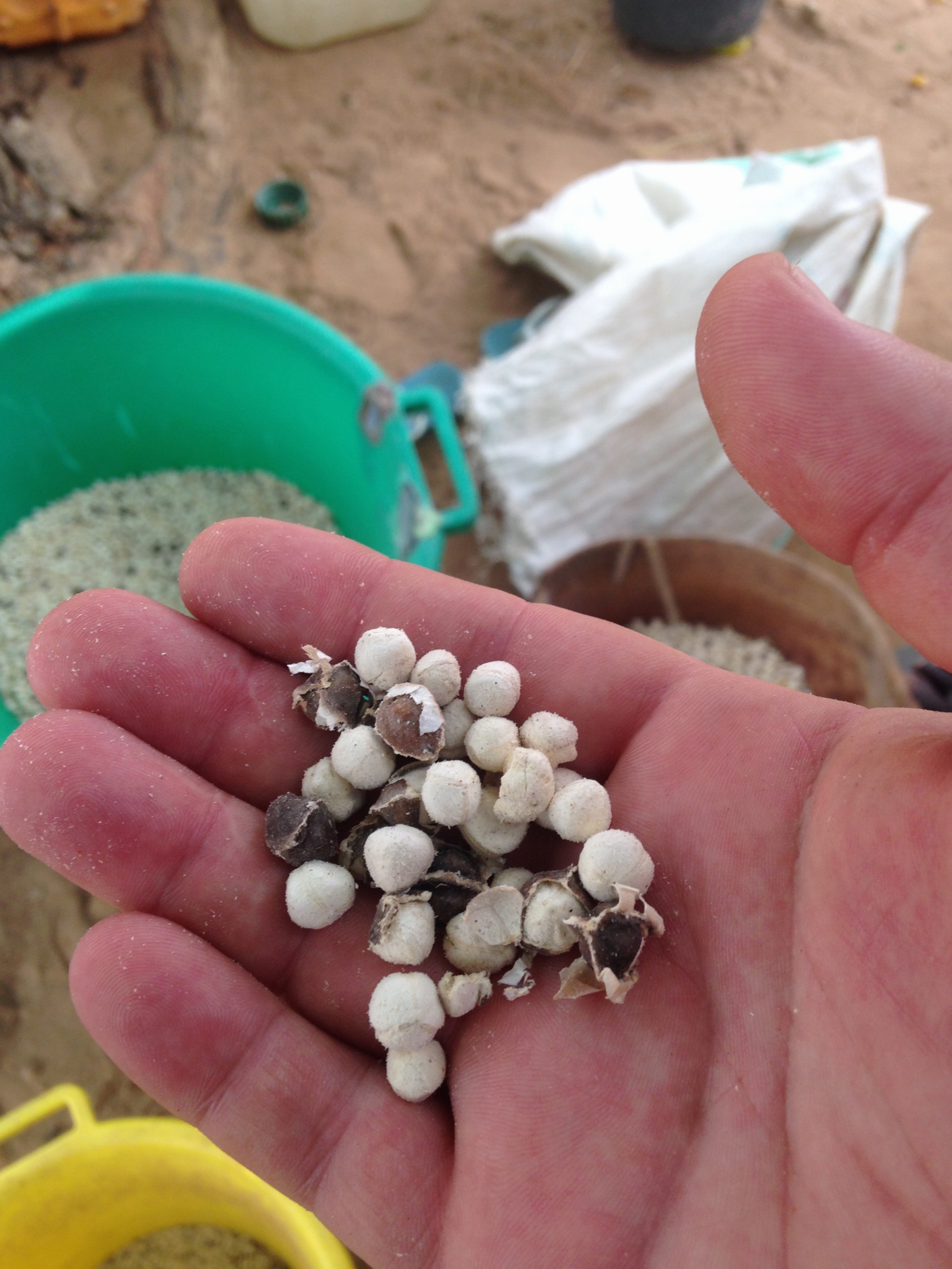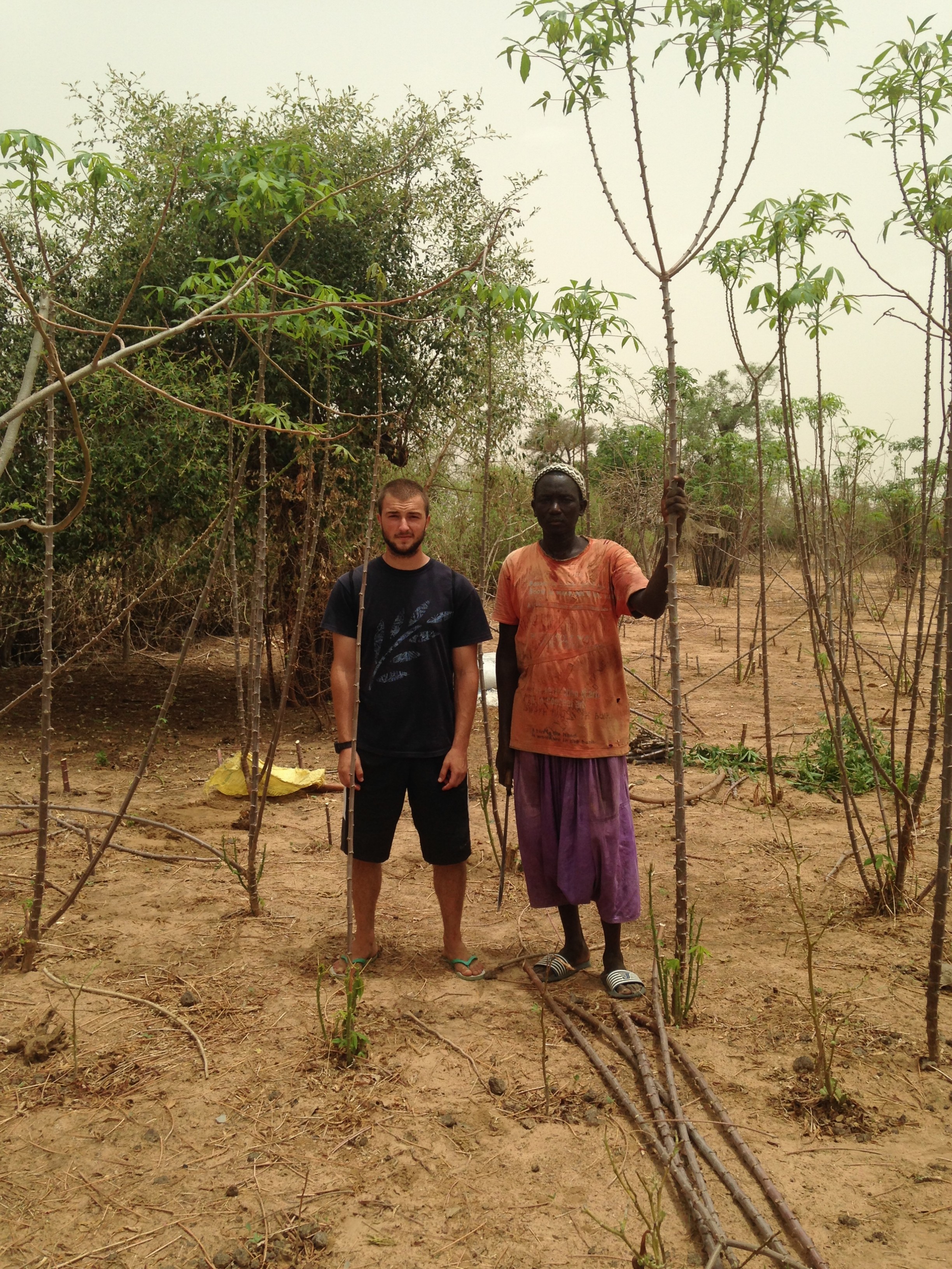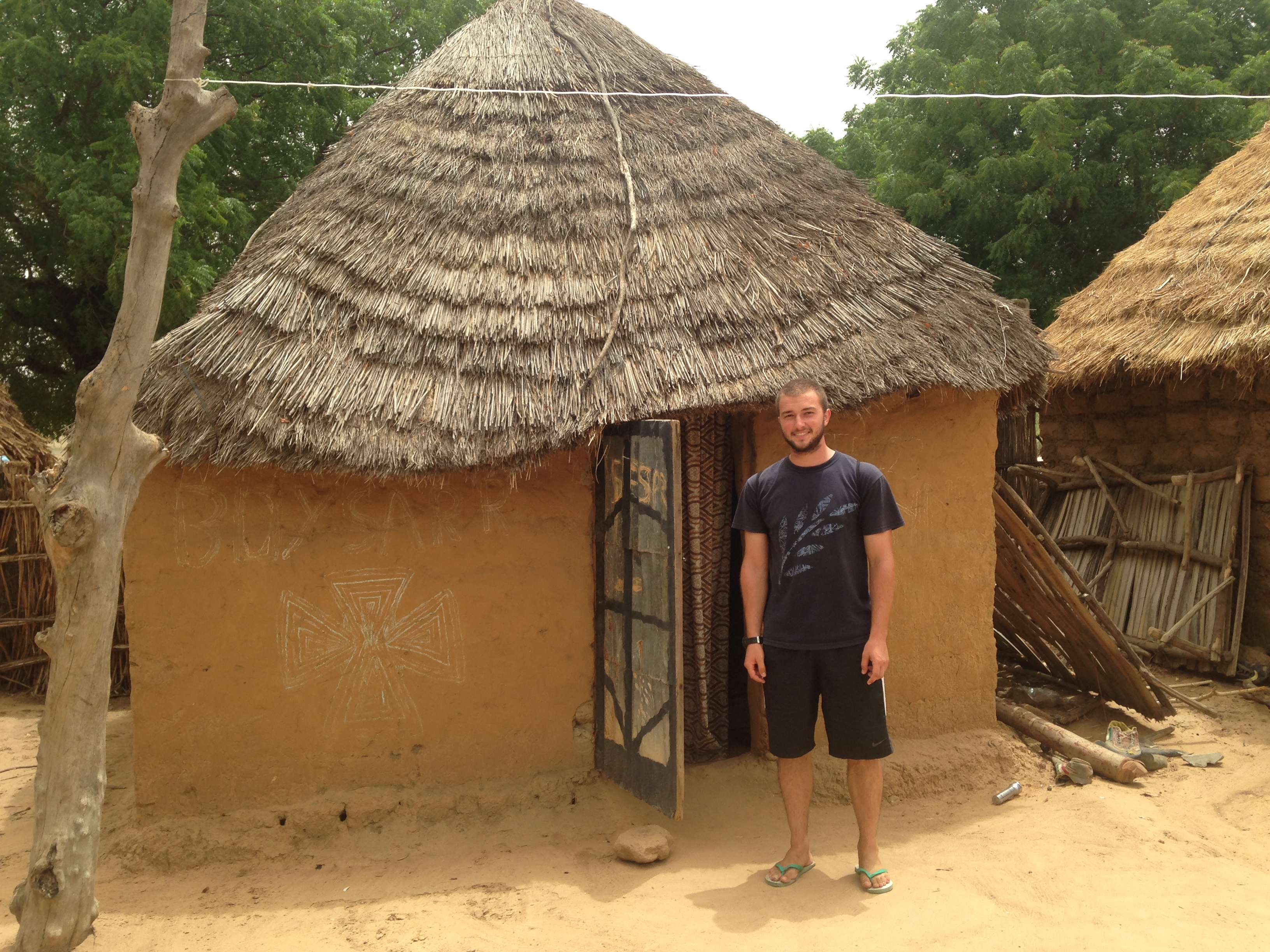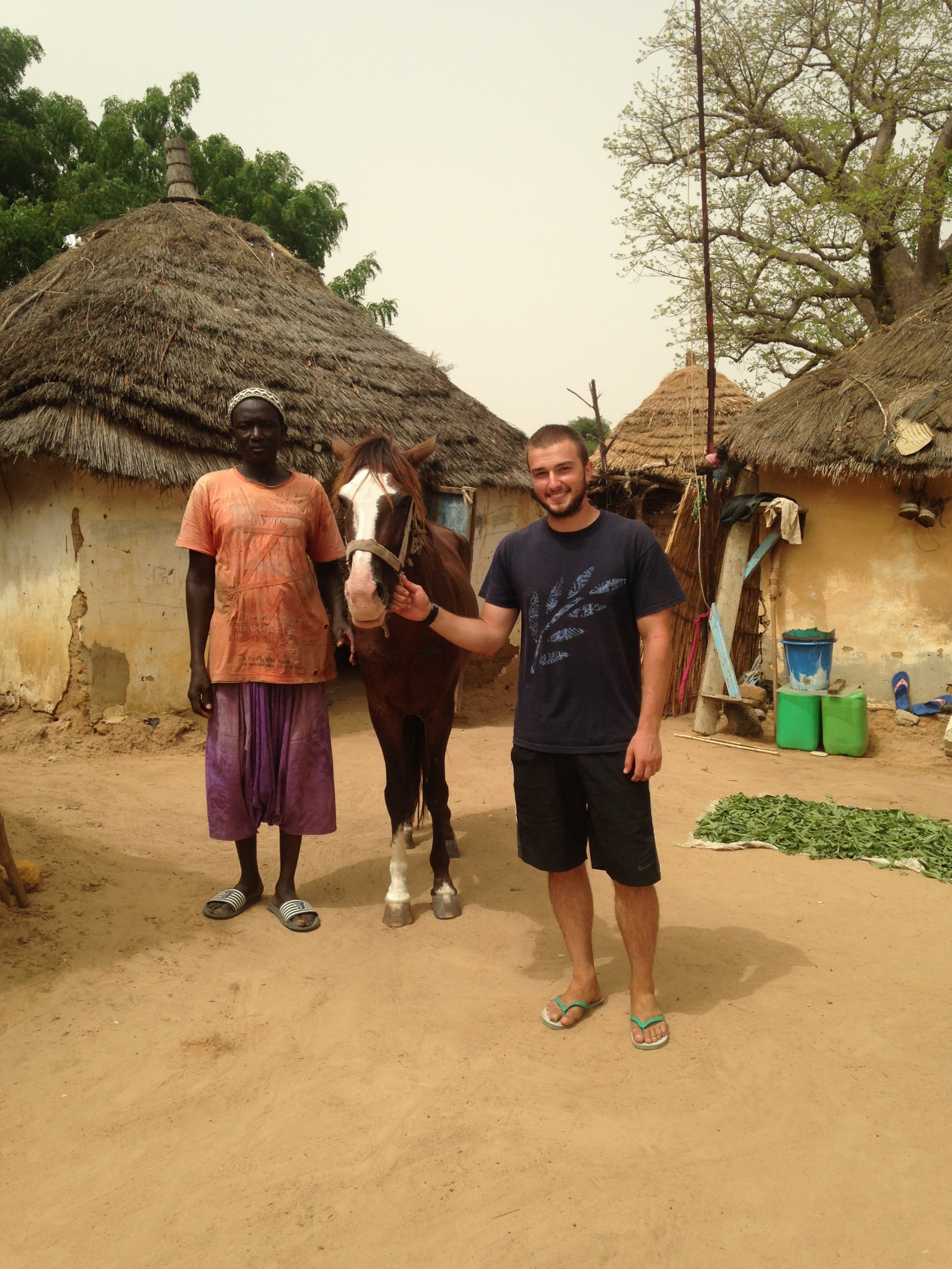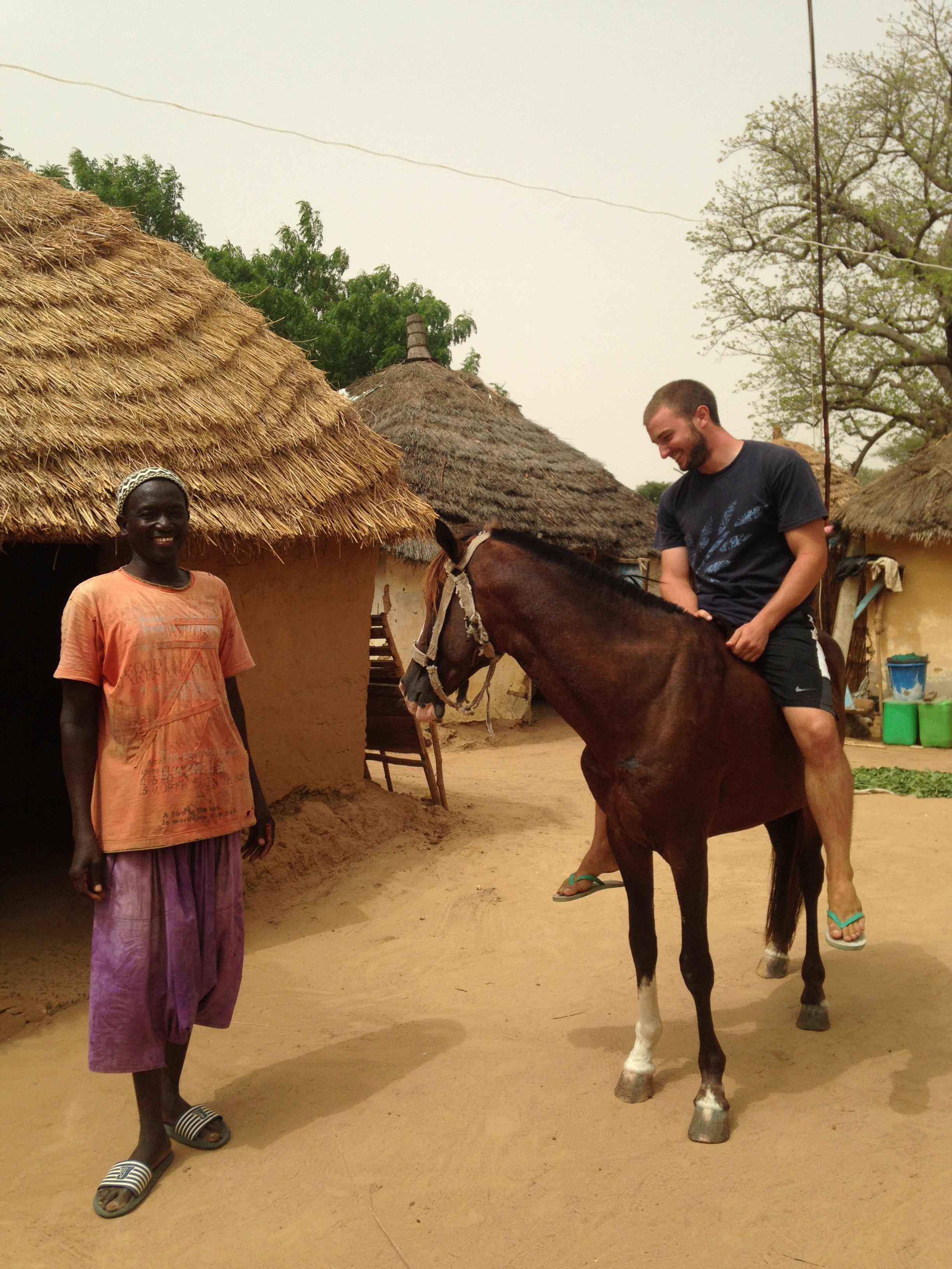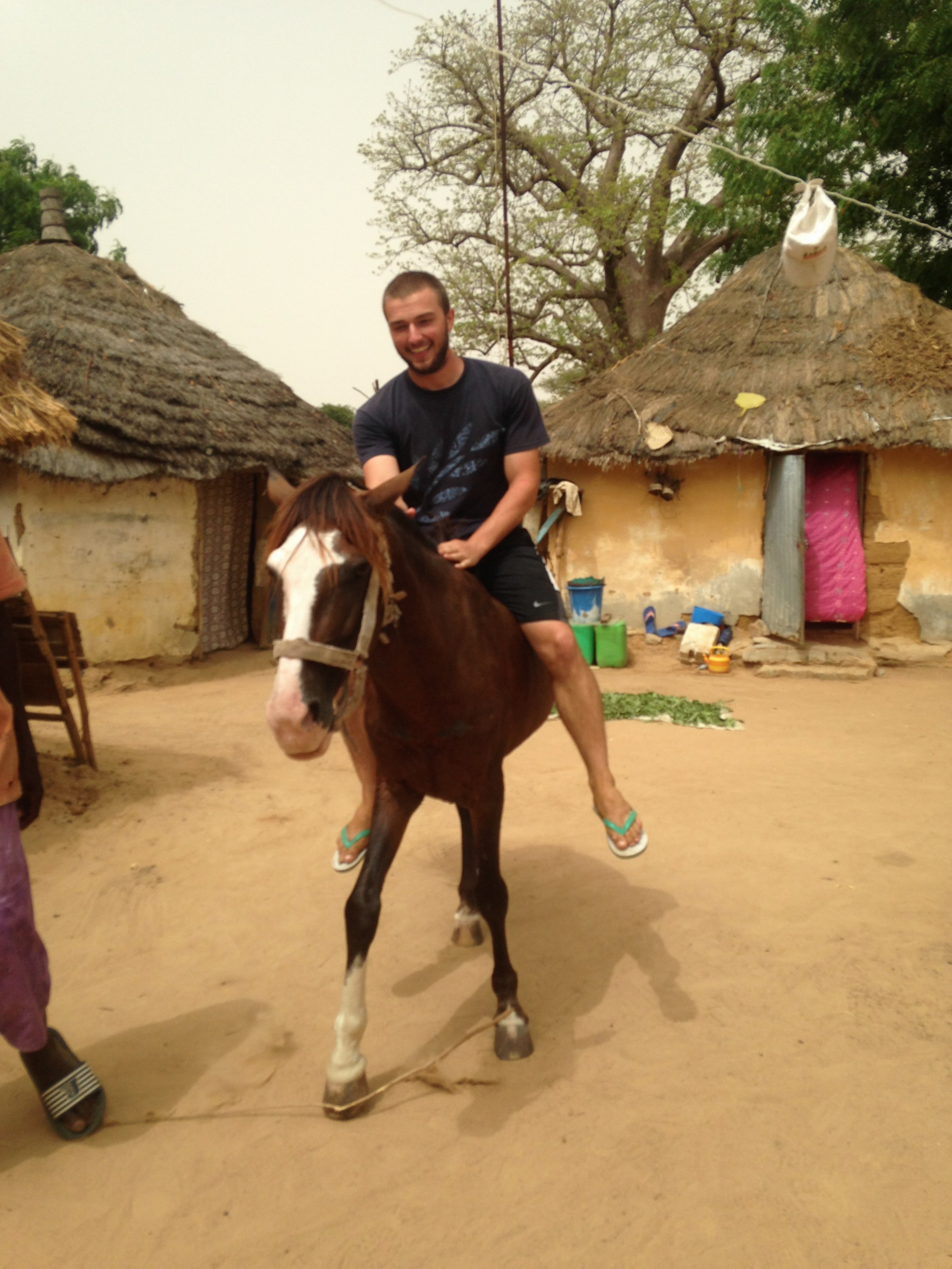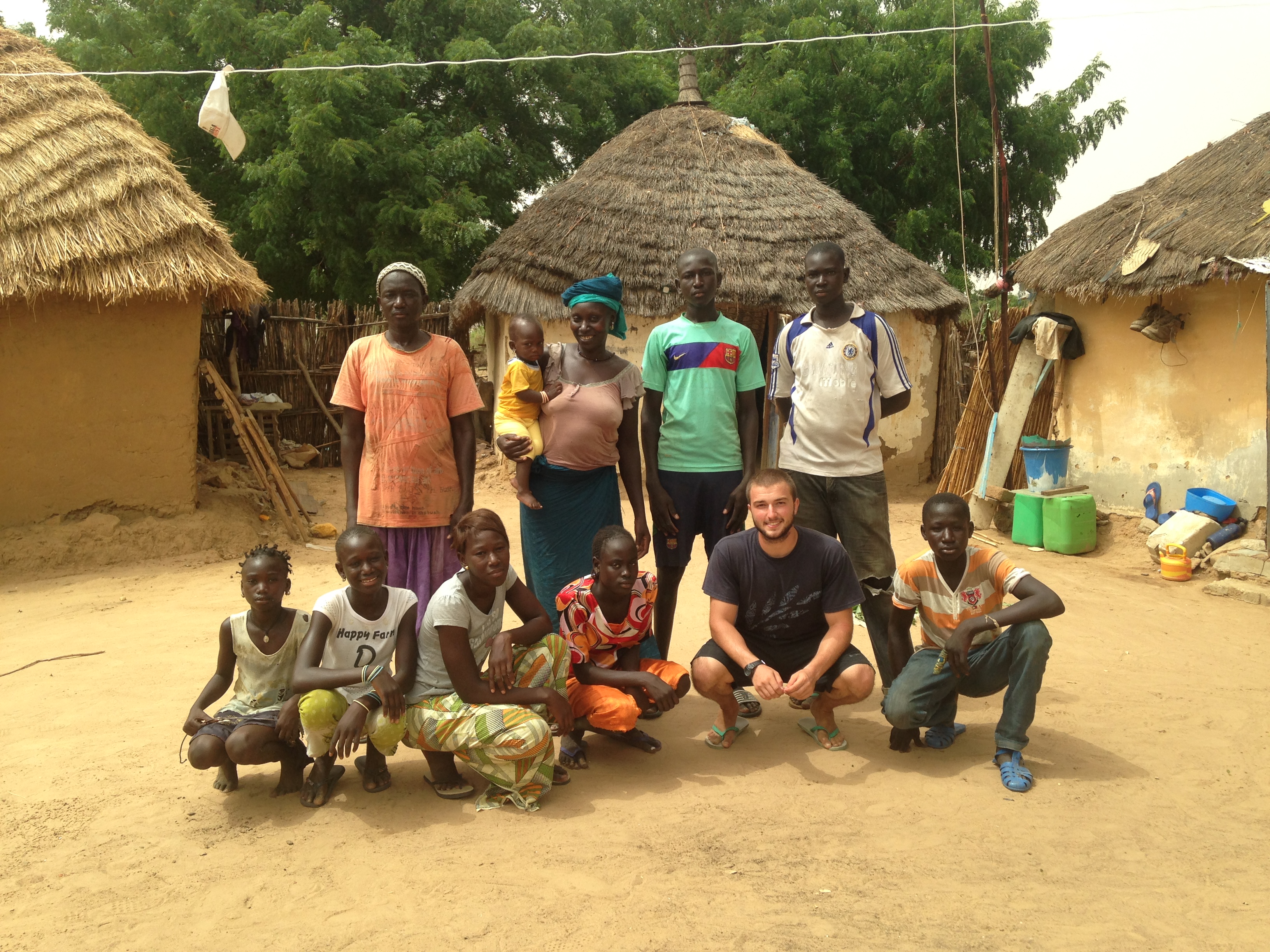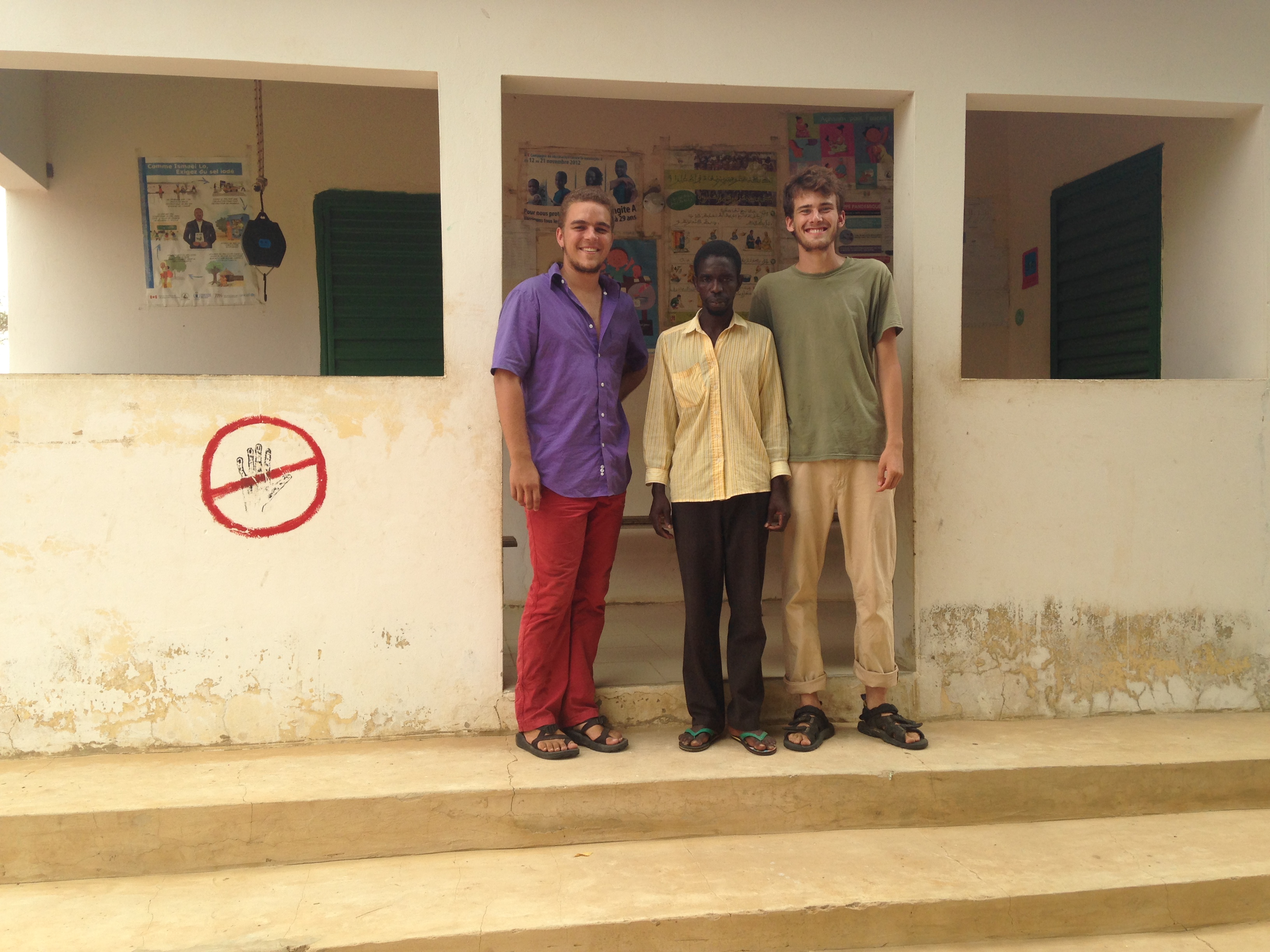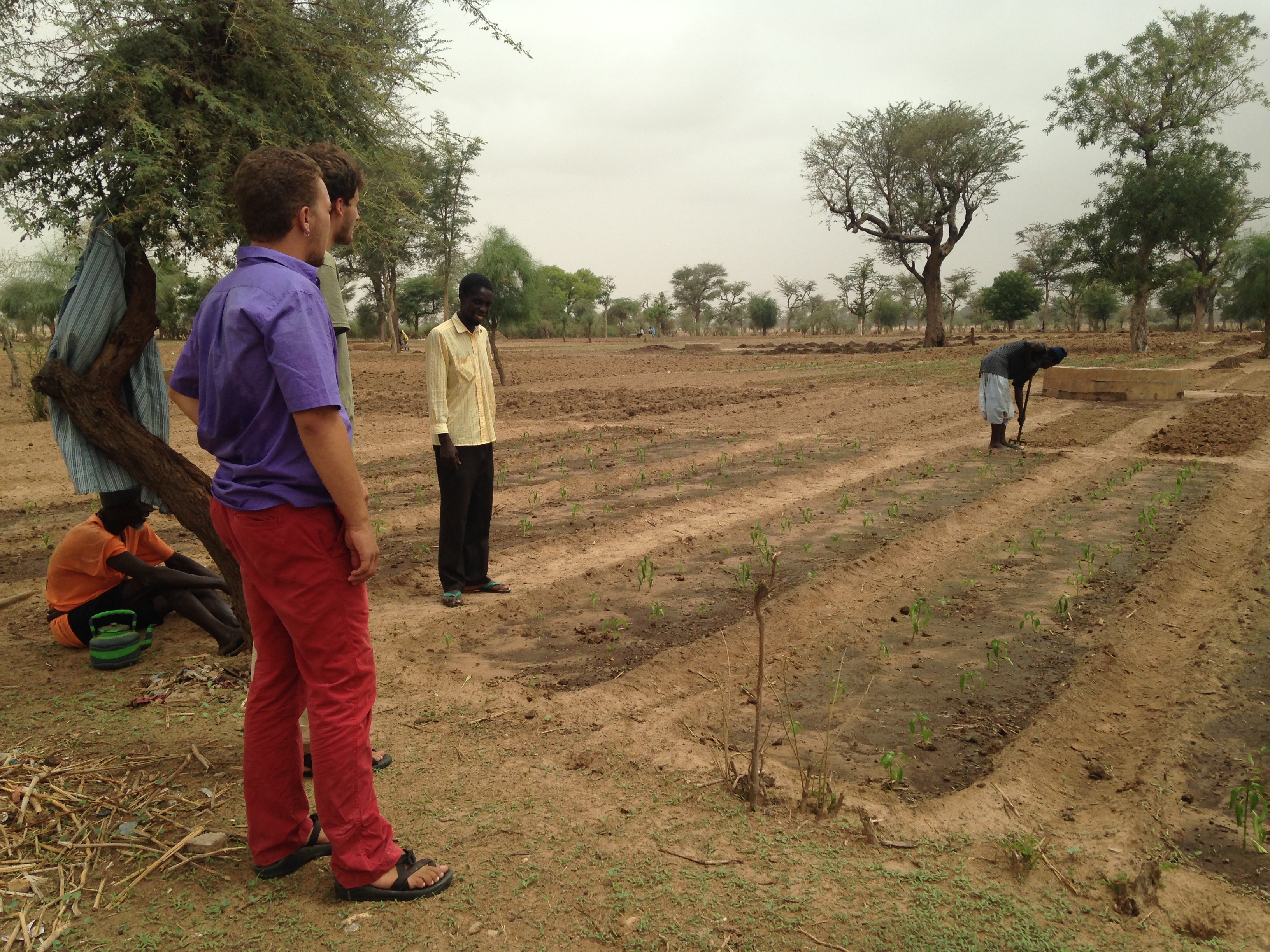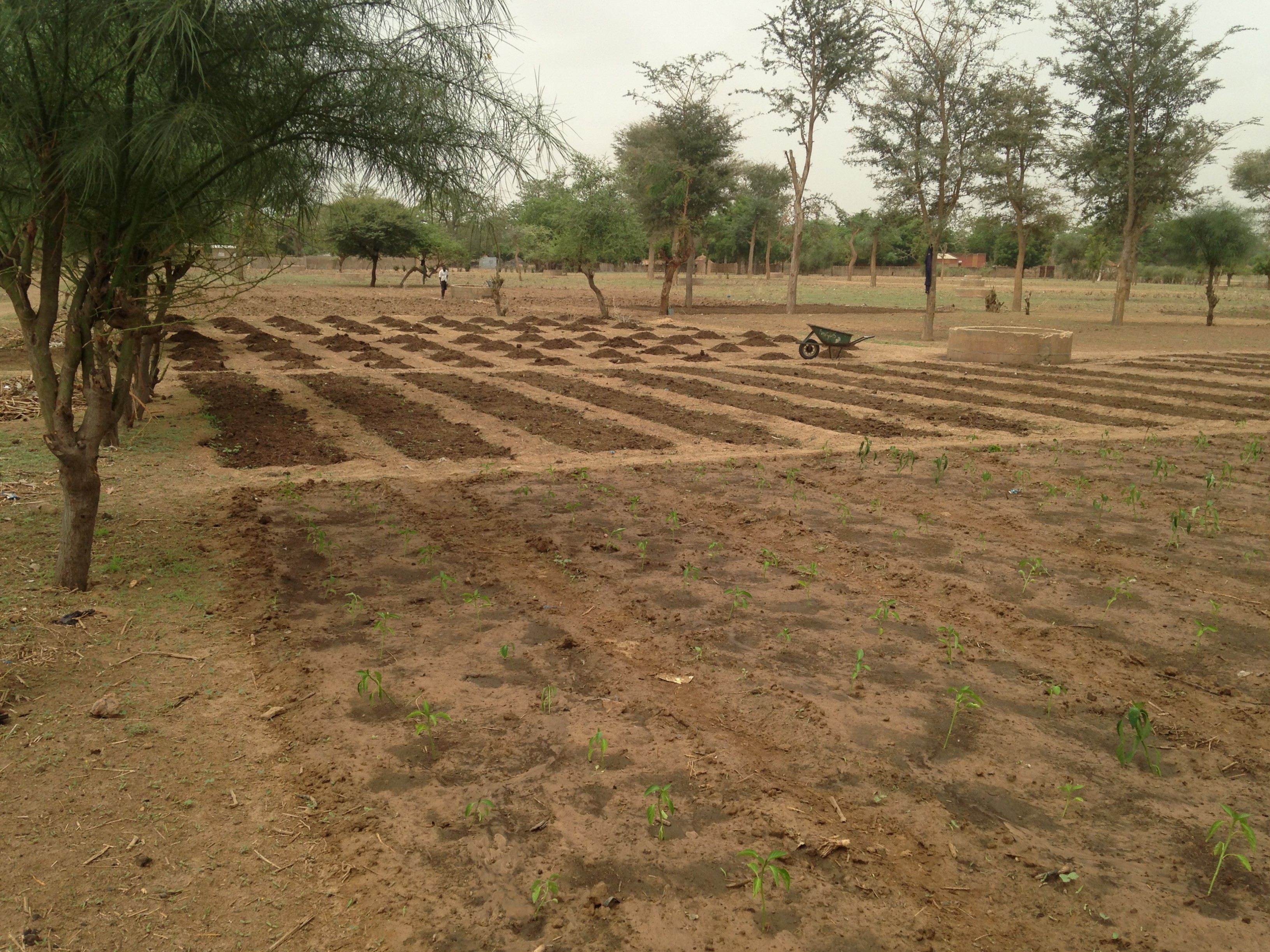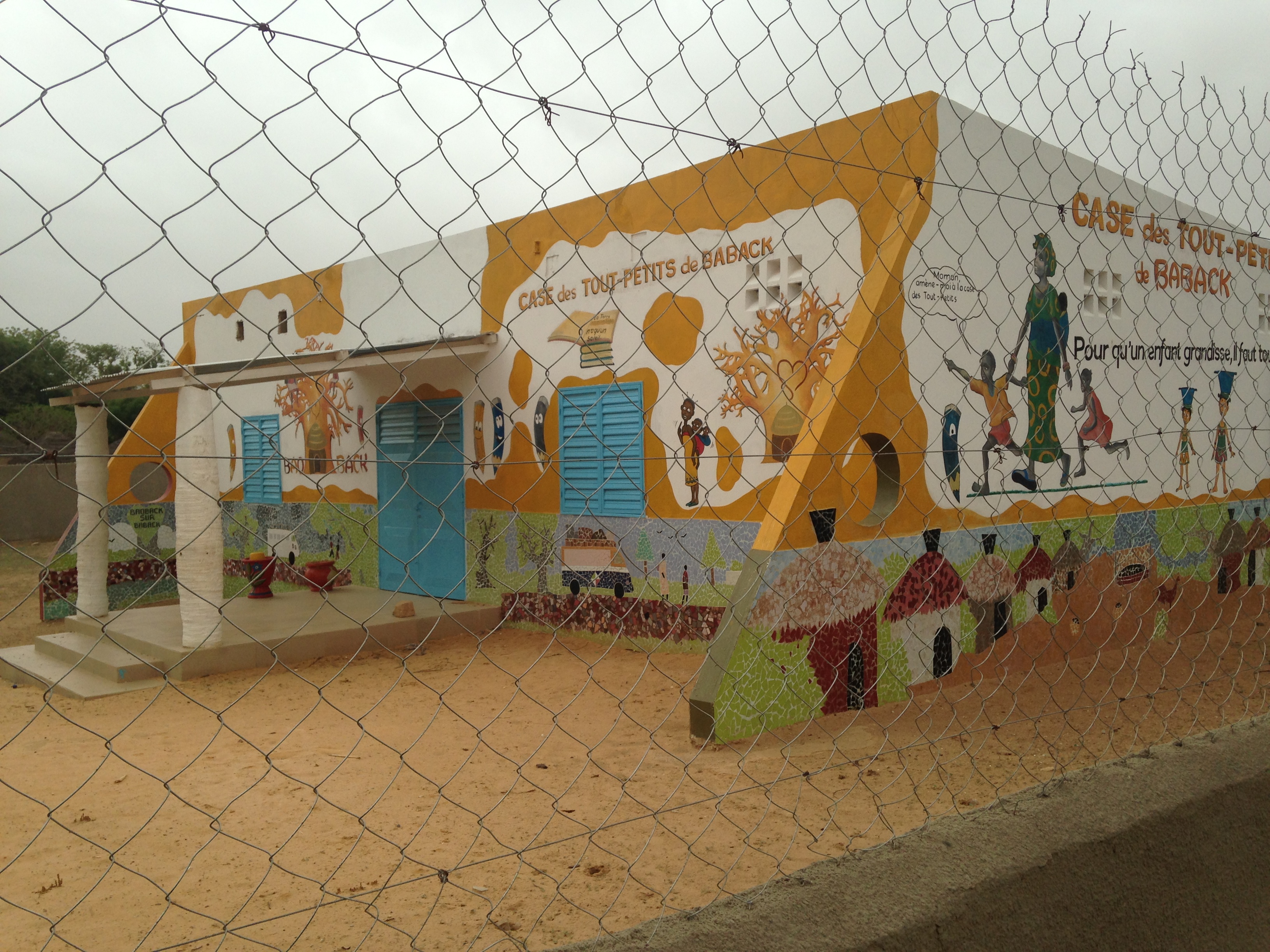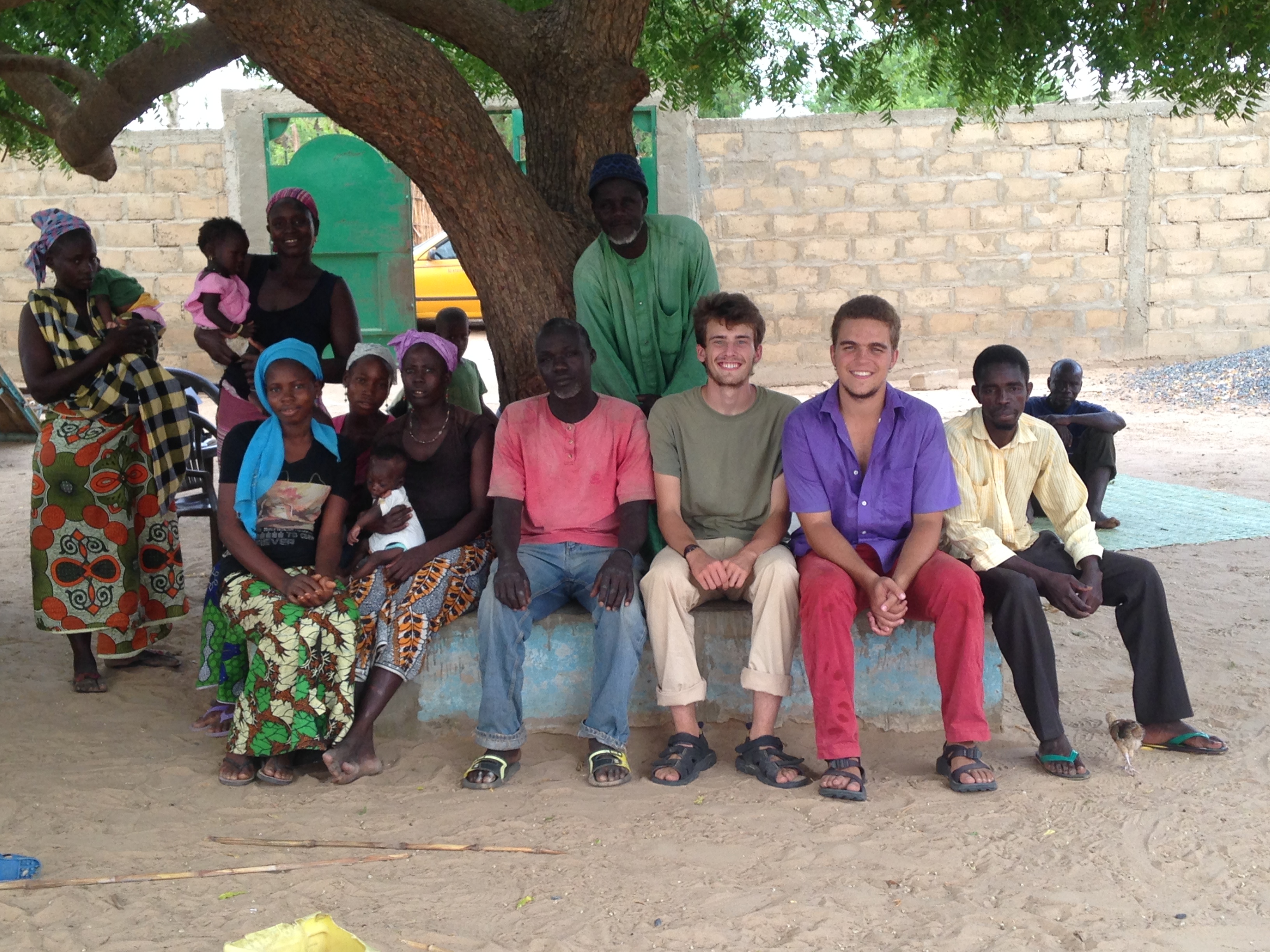Ndem, Niakhar, Baback
We spent a week visiting students in the south central peanut basin, a hot, sandy region that has felt the powerful strains of intensive peanut production for export since the time of colonialism. This is a rural area and with the coming of the first few rains the countryside is dotted with farmers and horses at work in the fields. The Serer ethnicity dominates in this area and most of our students are living with Serer families.
Hannah and Jake have been living in the Baay Fall darah at Ndem (described in the last post). A darah is both a school and the communal home to the followers of a Maribou. In Ndem the Maribou, or spiritual leader, is Sëriñ Babacar Mbow and his wife of French origin, Soxna Aïssa Cissé. The SSTers live in their own rooms in the darah, participate in the daily routines of work and conversation, and eat with the community. Some of their chores include working in the garden and tree nursery, helping to cook for the 40-50 persons in the darah, and working on a new zoo that has been under construction during their time there. Hannah has also helped design some textiles in the artisanal project and is working on a project that compares Mennonite quilting and the patchwork tradition of the Baay Fall.
Chris and Clayton have been living in Niakhar. Our main contact in Niakhar is Youth With a Mission and the local administrator of their program, Ferdinand. The SSTers have done some work in a local clinic and have helped to organize a small soccer league but with the coincidence of Ramadan, the end of school, and the beginning of the rainy season, they have found themselves exploring the possibilities of becoming more than doing, a common, and we think valuable experience in many of our more rural settings. Clayton is exploring dimensions of the local food system as part of his becoming process and Chris has been studying the significance of sport for Senegalese culture and society.
Ben and Paul have also been living in the rural setting of Baback, a village of several thousand people. Our main contact in Baback is Heifer International, and while the two young men have been introduced to some of the Heifer participants in the local area they have also found themselves participating in public health presentations and learning about the social structure of their Serer village under the guidance of Mousa. the administrator at the local clinic. Becoming, in relationship to their host family and the village, has been an important part of their experience as Ben works on a project that explores ground up development strategies and Paul explores language through theater.
